Entry Requirements
All visitors must hold a passport or a valid travel document for travel to Macao.
All visitors are required to have a visa except nationals of countries which are exempted from a visa or entry permit. For more information on “Visa” and “Entry Permit” Exemption, please visit the website of the Macao Immigration Services of Public Security Police Force: www.gov.mo/en/services/ps-1474/ps-1474b/
A Macao visa can be obtained through the Embassies / Consulates of the PRC and should be used within its validity. Visitors may also apply for an entry permit or visa upon arrival at the immigration checkpoint. However, visitors from certain countries are required to obtain a visa in advance before their trip to Macao. For more information, please visit the website: www.fsm.gov.mo/psp/eng/psp_top5_3m.html
There are three types of entry permit (i.e. Visa-upon-arrival) : Individual - MOP100 (MOP50 for children under the age of 12) Family Passport - MOP200 Group - MOP50 per person for groups of at least 10 people organized by a single travel manager and presenting a collective travel document
The above information is for reference only. For further information on entry formalities, please contact the Border Control Department of Public Security Police Force at Tel: (Macao area code) +853 2872 5488 or email: [email protected] , or visit their website: www.fsm.gov.mo .
All visitors entering Macao must go through Customs clearance and declare any dutiable commodities exceeding duty-free quotas. To find out more details about dutiable commodities and latest duty-free concessions, please visit the Macao Customs Service's website at: www.customs.gov.mo .
According to the provisions of the Law, passengers arriving at Macao carrying cash or CBNIs, such as traveller's cheques, cheques, bills of exchange, money orders and promissory notes, with value of or exceeding MOP 120,000.00, should use the Red Channel with a completed declaration form and make a declaration to the Customs officer. Passengers leaving Macao need to disclose truthfully the amount of cash or CBNIs carried when asked by a Customs officer, or they shall be liable to a fine of MOP 1,000.00 to MOP 500,000.00. Travelers who have a layover in Macao SAR and transit to another destination have no obligation of declaration. For more details, please visit the Macao Customs Service's website: www.customs.gov.mo/cn/customs6.html
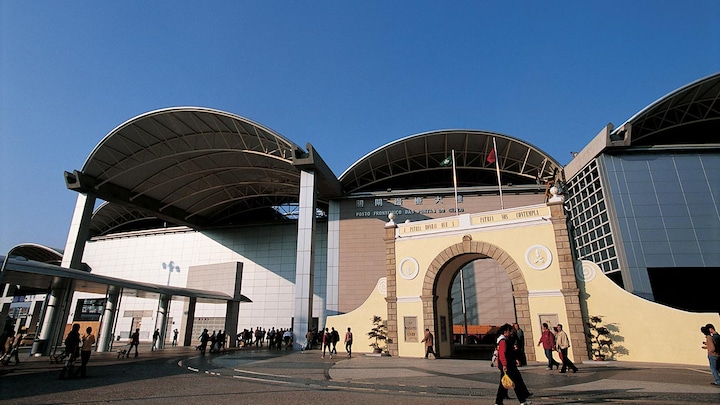
Passenger Service Fee
Airport Security Fee
For more information please visit website of Macau International Airport .
You are using an outdated browser. Upgrade your browser today or install Google Chrome Frame to better experience this site.

Macau SAR (China) Traveler View
Travel health notices, vaccines and medicines, non-vaccine-preventable diseases, stay healthy and safe.
- Packing List
After Your Trip

There are no notices currently in effect for Macau SAR (China).
⇧ Top
Check the vaccines and medicines list and visit your doctor at least a month before your trip to get vaccines or medicines you may need. If you or your doctor need help finding a location that provides certain vaccines or medicines, visit the Find a Clinic page.
Routine vaccines
Recommendations.
Make sure you are up-to-date on all routine vaccines before every trip. Some of these vaccines include
- Chickenpox (Varicella)
- Diphtheria-Tetanus-Pertussis
- Flu (influenza)
- Measles-Mumps-Rubella (MMR)
Immunization schedules
All eligible travelers should be up to date with their COVID-19 vaccines. Please see Your COVID-19 Vaccination for more information.
COVID-19 vaccine
Hepatitis A
Recommended for unvaccinated travelers one year old or older going to Macau.
Infants 6 to 11 months old should also be vaccinated against Hepatitis A. The dose does not count toward the routine 2-dose series.
Travelers allergic to a vaccine component or who are younger than 6 months should receive a single dose of immune globulin, which provides effective protection for up to 2 months depending on dosage given.
Unvaccinated travelers who are over 40 years old, immunocompromised, or have chronic medical conditions planning to depart to a risk area in less than 2 weeks should get the initial dose of vaccine and at the same appointment receive immune globulin.
Hepatitis A - CDC Yellow Book
Dosing info - Hep A
Hepatitis B
Recommended for unvaccinated travelers of all ages traveling to Macau.
Hepatitis B - CDC Yellow Book
Dosing info - Hep B
Cases of measles are on the rise worldwide. Travelers are at risk of measles if they have not been fully vaccinated at least two weeks prior to departure, or have not had measles in the past, and travel internationally to areas where measles is spreading.
All international travelers should be fully vaccinated against measles with the measles-mumps-rubella (MMR) vaccine, including an early dose for infants 6–11 months, according to CDC’s measles vaccination recommendations for international travel .
Measles (Rubeola) - CDC Yellow Book
Macau is free of dog rabies. However, rabies may still be present in wildlife species, particularly bats. CDC recommends rabies vaccination before travel only for people working directly with wildlife. These people may include veterinarians, animal handlers, field biologists, or laboratory workers working with specimens from mammalian species.
Rabies - CDC Yellow Book
Recommended for most travelers, especially those staying with friends or relatives or visiting smaller cities or rural areas.
Typhoid - CDC Yellow Book
Dosing info - Typhoid
Avoid contaminated water
Leptospirosis
How most people get sick (most common modes of transmission)
- Touching urine or other body fluids from an animal infected with leptospirosis
- Swimming or wading in urine-contaminated fresh water, or contact with urine-contaminated mud
- Drinking water or eating food contaminated with animal urine
- Avoid contaminated water and soil
Clinical Guidance
Avoid bug bites.
Chikungunya
- Mosquito bite
- Avoid Bug Bites
- Mosquito bite
Airborne & droplet
- Breathing in air or accidentally eating food contaminated with the urine, droppings, or saliva of infected rodents
- Bite from an infected rodent
- Less commonly, being around someone sick with hantavirus (only occurs with Andes virus)
- Avoid rodents and areas where they live
- Avoid sick people
Tuberculosis (TB)
- Breathe in TB bacteria that is in the air from an infected and contagious person coughing, speaking, or singing.
Learn actions you can take to stay healthy and safe on your trip. Vaccines cannot protect you from many diseases in Macau, so your behaviors are important.
Eat and drink safely
Food and water standards around the world vary based on the destination. Standards may also differ within a country and risk may change depending on activity type (e.g., hiking versus business trip). You can learn more about safe food and drink choices when traveling by accessing the resources below.
- Choose Safe Food and Drinks When Traveling
- Water Treatment Options When Hiking, Camping or Traveling
- Global Water, Sanitation and Hygiene | Healthy Water
- Avoid Contaminated Water During Travel
You can also visit the Department of State Country Information Pages for additional information about food and water safety.
Prevent bug bites
Bugs (like mosquitoes, ticks, and fleas) can spread a number of diseases in Macau. Many of these diseases cannot be prevented with a vaccine or medicine. You can reduce your risk by taking steps to prevent bug bites.
What can I do to prevent bug bites?
- Cover exposed skin by wearing long-sleeved shirts, long pants, and hats.
- Use an appropriate insect repellent (see below).
- Use permethrin-treated clothing and gear (such as boots, pants, socks, and tents). Do not use permethrin directly on skin.
- Stay and sleep in air-conditioned or screened rooms.
- Use a bed net if the area where you are sleeping is exposed to the outdoors.
What type of insect repellent should I use?
- FOR PROTECTION AGAINST TICKS AND MOSQUITOES: Use a repellent that contains 20% or more DEET for protection that lasts up to several hours.
- Picaridin (also known as KBR 3023, Bayrepel, and icaridin)
- Oil of lemon eucalyptus (OLE) or para-menthane-diol (PMD)
- 2-undecanone
- Always use insect repellent as directed.
What should I do if I am bitten by bugs?
- Avoid scratching bug bites, and apply hydrocortisone cream or calamine lotion to reduce the itching.
- Check your entire body for ticks after outdoor activity. Be sure to remove ticks properly.
What can I do to avoid bed bugs?
Although bed bugs do not carry disease, they are an annoyance. See our information page about avoiding bug bites for some easy tips to avoid them. For more information on bed bugs, see Bed Bugs .
For more detailed information on avoiding bug bites, see Avoid Bug Bites .
Stay safe outdoors
If your travel plans in Macau include outdoor activities, take these steps to stay safe and healthy during your trip.
- Stay alert to changing weather conditions and adjust your plans if conditions become unsafe.
- Prepare for activities by wearing the right clothes and packing protective items, such as bug spray, sunscreen, and a basic first aid kit.
- Consider learning basic first aid and CPR before travel. Bring a travel health kit with items appropriate for your activities.
- If you are outside for many hours in heat, eat salty snacks and drink water to stay hydrated and replace salt lost through sweating.
- Protect yourself from UV radiation : use sunscreen with an SPF of at least 15, wear protective clothing, and seek shade during the hottest time of day (10 a.m.–4 p.m.).
- Be especially careful during summer months and at high elevation. Because sunlight reflects off snow, sand, and water, sun exposure may be increased during activities like skiing, swimming, and sailing.
- Very cold temperatures can be dangerous. Dress in layers and cover heads, hands, and feet properly if you are visiting a cold location.
Stay safe around water
- Swim only in designated swimming areas. Obey lifeguards and warning flags on beaches.
- Practice safe boating—follow all boating safety laws, do not drink alcohol if driving a boat, and always wear a life jacket.
- Do not dive into shallow water.
- Do not swim in freshwater in developing areas or where sanitation is poor.
- Avoid swallowing water when swimming. Untreated water can carry germs that make you sick.
- To prevent infections, wear shoes on beaches where there may be animal waste.
Keep away from animals
Most animals avoid people, but they may attack if they feel threatened, are protecting their young or territory, or if they are injured or ill. Animal bites and scratches can lead to serious diseases such as rabies.
Follow these tips to protect yourself:
- Do not touch or feed any animals you do not know.
- Do not allow animals to lick open wounds, and do not get animal saliva in your eyes or mouth.
- Avoid rodents and their urine and feces.
- Traveling pets should be supervised closely and not allowed to come in contact with local animals.
- If you wake in a room with a bat, seek medical care immediately. Bat bites may be hard to see.
All animals can pose a threat, but be extra careful around dogs, bats, monkeys, sea animals such as jellyfish, and snakes. If you are bitten or scratched by an animal, immediately:
- Wash the wound with soap and clean water.
- Go to a doctor right away.
- Tell your doctor about your injury when you get back to the United States.
Consider buying medical evacuation insurance. Rabies is a deadly disease that must be treated quickly, and treatment may not be available in some countries.
Reduce your exposure to germs
Follow these tips to avoid getting sick or spreading illness to others while traveling:
- Wash your hands often, especially before eating.
- If soap and water aren’t available, clean hands with hand sanitizer (containing at least 60% alcohol).
- Don’t touch your eyes, nose, or mouth. If you need to touch your face, make sure your hands are clean.
- Cover your mouth and nose with a tissue or your sleeve (not your hands) when coughing or sneezing.
- Try to avoid contact with people who are sick.
- If you are sick, stay home or in your hotel room, unless you need medical care.
Avoid sharing body fluids
Diseases can be spread through body fluids, such as saliva, blood, vomit, and semen.
Protect yourself:
- Use latex condoms correctly.
- Do not inject drugs.
- Limit alcohol consumption. People take more risks when intoxicated.
- Do not share needles or any devices that can break the skin. That includes needles for tattoos, piercings, and acupuncture.
- If you receive medical or dental care, make sure the equipment is disinfected or sanitized.
Know how to get medical care while traveling
Plan for how you will get health care during your trip, should the need arise:
- Carry a list of local doctors and hospitals at your destination.
- Review your health insurance plan to determine what medical services it would cover during your trip. Consider purchasing travel health and medical evacuation insurance.
- Carry a card that identifies, in the local language, your blood type, chronic conditions or serious allergies, and the generic names of any medications you take.
- Some prescription drugs may be illegal in other countries. Call Macau’s embassy to verify that all of your prescription(s) are legal to bring with you.
- Bring all the medicines (including over-the-counter medicines) you think you might need during your trip, including extra in case of travel delays. Ask your doctor to help you get prescriptions filled early if you need to.
Many foreign hospitals and clinics are accredited by the Joint Commission International. A list of accredited facilities is available at their website ( www.jointcommissioninternational.org ).
In some countries, medicine (prescription and over-the-counter) may be substandard or counterfeit. Bring the medicines you will need from the United States to avoid having to buy them at your destination.
Select safe transportation
Motor vehicle crashes are the #1 killer of healthy US citizens in foreign countries.
In many places cars, buses, large trucks, rickshaws, bikes, people on foot, and even animals share the same lanes of traffic, increasing the risk for crashes.
Be smart when you are traveling on foot.
- Use sidewalks and marked crosswalks.
- Pay attention to the traffic around you, especially in crowded areas.
- Remember, people on foot do not always have the right of way in other countries.
Riding/Driving
Choose a safe vehicle.
- Choose official taxis or public transportation, such as trains and buses.
- Ride only in cars that have seatbelts.
- Avoid overcrowded, overloaded, top-heavy buses and minivans.
- Avoid riding on motorcycles or motorbikes, especially motorbike taxis. (Many crashes are caused by inexperienced motorbike drivers.)
- Choose newer vehicles—they may have more safety features, such as airbags, and be more reliable.
- Choose larger vehicles, which may provide more protection in crashes.
Think about the driver.
- Do not drive after drinking alcohol or ride with someone who has been drinking.
- Consider hiring a licensed, trained driver familiar with the area.
- Arrange payment before departing.
Follow basic safety tips.
- Wear a seatbelt at all times.
- Sit in the back seat of cars and taxis.
- When on motorbikes or bicycles, always wear a helmet. (Bring a helmet from home, if needed.)
- Avoid driving at night; street lighting in certain parts of Macau may be poor.
- Do not use a cell phone or text while driving (illegal in many countries).
- Travel during daylight hours only, especially in rural areas.
- If you choose to drive a vehicle in Macau, learn the local traffic laws and have the proper paperwork.
- Get any driving permits and insurance you may need. Get an International Driving Permit (IDP). Carry the IDP and a US-issued driver's license at all times.
- Check with your auto insurance policy's international coverage, and get more coverage if needed. Make sure you have liability insurance.
- Avoid using local, unscheduled aircraft.
- If possible, fly on larger planes (more than 30 seats); larger airplanes are more likely to have regular safety inspections.
- Try to schedule flights during daylight hours and in good weather.
Medical Evacuation Insurance
If you are seriously injured, emergency care may not be available or may not meet US standards. Trauma care centers are uncommon outside urban areas. Having medical evacuation insurance can be helpful for these reasons.
Helpful Resources
Road Safety Overseas (Information from the US Department of State): Includes tips on driving in other countries, International Driving Permits, auto insurance, and other resources.
The Association for International Road Travel has country-specific Road Travel Reports available for most countries for a minimal fee.
Traffic flows on the left side of the road in Macau.
- Always pay close attention to the flow of traffic, especially when crossing the street.
- LOOK RIGHT for approaching traffic.
Maintain personal security
Use the same common sense traveling overseas that you would at home, and always stay alert and aware of your surroundings.
Before you leave
- Research your destination(s), including local laws, customs, and culture.
- Monitor travel advisories and alerts and read travel tips from the US Department of State.
- Enroll in the Smart Traveler Enrollment Program (STEP) .
- Leave a copy of your itinerary, contact information, credit cards, and passport with someone at home.
- Pack as light as possible, and leave at home any item you could not replace.
While at your destination(s)
- Carry contact information for the nearest US embassy or consulate .
- Carry a photocopy of your passport and entry stamp; leave the actual passport securely in your hotel.
- Follow all local laws and social customs.
- Do not wear expensive clothing or jewelry.
- Always keep hotel doors locked, and store valuables in secure areas.
- If possible, choose hotel rooms between the 2nd and 6th floors.
Healthy Travel Packing List
Use the Healthy Travel Packing List for Macau SAR (China) for a list of health-related items to consider packing for your trip. Talk to your doctor about which items are most important for you.
Why does CDC recommend packing these health-related items?
It’s best to be prepared to prevent and treat common illnesses and injuries. Some supplies and medicines may be difficult to find at your destination, may have different names, or may have different ingredients than what you normally use.
If you are not feeling well after your trip, you may need to see a doctor. If you need help finding a travel medicine specialist, see Find a Clinic . Be sure to tell your doctor about your travel, including where you went and what you did on your trip. Also tell your doctor if you were bitten or scratched by an animal while traveling.
For more information on what to do if you are sick after your trip, see Getting Sick after Travel .
Map Disclaimer - The boundaries and names shown and the designations used on maps do not imply the expression of any opinion whatsoever on the part of the Centers for Disease Control and Prevention concerning the legal status of any country, territory, city or area or of its authorities, or concerning the delimitation of its frontiers or boundaries. Approximate border lines for which there may not yet be full agreement are generally marked.
Other Destinations
If you need help finding travel information:
Message & data rates may apply. CDC Privacy Policy
File Formats Help:
- Adobe PDF file
- Microsoft PowerPoint file
- Microsoft Word file
- Microsoft Excel file
- Audio/Video file
- Apple Quicktime file
- RealPlayer file
- Zip Archive file
Exit Notification / Disclaimer Policy
- The Centers for Disease Control and Prevention (CDC) cannot attest to the accuracy of a non-federal website.
- Linking to a non-federal website does not constitute an endorsement by CDC or any of its employees of the sponsors or the information and products presented on the website.
- You will be subject to the destination website's privacy policy when you follow the link.
- CDC is not responsible for Section 508 compliance (accessibility) on other federal or private website.
Update April 12, 2024
Information for u.s. citizens in the middle east.
- Travel Advisories |
- Contact Us |
- MyTravelGov |
Find U.S. Embassies & Consulates
Travel.state.gov, congressional liaison, special issuance agency, u.s. passports, international travel, intercountry adoption, international parental child abduction, records and authentications, popular links, travel advisories, mytravelgov, stay connected, legal resources, legal information, info for u.s. law enforcement, replace or certify documents.
Share this page:
China Travel Advisory
Travel advisory april 12, 2024, mainland china, hong kong & macau - see summaries.
Updated due to new national security legislation in the Hong Kong Special Administrative Region.
Summary: Reconsider travel to Mainland China due to the arbitrary enforcement of local laws, including in relation to exit bans, and the risk of wrongful detentions.
Exercise increased caution when traveling to the Hong Kong Special Administrative Region (SAR) due to the arbitrary enforcement of local laws .
Reconsider travel to the Macau Special Administrative Region (SAR) due to a limited ability to provide emergency consular services . Exercise increased caution when traveling to the Macau SAR due to the arbitrary enforcement of local laws .
See specific risks and conditions in each jurisdiction .
Mainland China – Level 3: Reconsider Travel
Reconsider travel due to the arbitrary enforcement of local laws , including in relation to exit bans, and the risk of wrongful detentions .
Summary: The People’s Republic of China (PRC) government arbitrarily enforces local laws, including issuing exit bans on U.S. citizens and citizens of other countries, without fair and transparent process under the law.
The Department of State has determined the risk of wrongful detention of U.S. nationals by the PRC government exists in the PRC.
U.S. citizens traveling or residing in the PRC may be detained without access to U.S. consular services or information about their alleged crime. U.S. citizens in the PRC may be subjected to interrogations and detention without fair and transparent treatment under the law.
Foreigners in the PRC, including but not limited to businesspeople, former foreign-government personnel, academics, relatives of PRC citizens involved in legal disputes, and journalists have been interrogated and detained by PRC officials for alleged violations of PRC national security laws. The PRC has also interrogated, detained, and expelled U.S. citizens living and working in the PRC.
PRC authorities appear to have broad discretion to deem a wide range of documents, data, statistics, or materials as state secrets and to detain and prosecute foreign nationals for alleged espionage. There is increased official scrutiny of U.S. and third-country firms, such as professional service and due diligence companies, operating in the PRC. Security personnel could detain U.S. citizens or subject them to prosecution for conducting research or accessing publicly available material inside the PRC.
Security personnel could detain and/or deport U.S. citizens for sending private electronic messages critical of the PRC, Hong Kong SAR, or Macau SAR governments.
In addition, the PRC government has used restrictions on travel or departure from the PRC, or so-called exit bans, to:
- compel individuals to participate in PRC government investigations;
- pressure family members of the restricted individual to return to the PRC from abroad;
- resolve civil disputes in favor of PRC citizens; and
- gain bargaining leverage over foreign governments.
U.S. citizens might only become aware of an exit ban when they attempt to depart the PRC, and there may be no available legal process to contest an exit ban in a court of law. Relatives, including minor children, of those under investigation in the PRC may become subject to an exit ban.
The PRC government does not recognize dual nationality. Dual U.S.-PRC citizens and U.S. citizens of Chinese descent may be subject to additional scrutiny and harassment. If you are a U.S. citizen and choose to enter Mainland China on travel documents other than a U.S. passport and are detained or arrested, the PRC government may not notify the U.S. Embassy or the U.S. Consulates General or allow consular access.
Check with the PRC Embassy in the United States for the most updated information on travel to the PRC. In some limited circumstances travelers to Mainland China may face additional COVID-19 testing requirements to enter some facilities or events.
The Department of State does not provide or coordinate direct medical care to private U.S. citizens abroad. U.S. citizens overseas may receive PRC-approved COVID-19 vaccine doses where they are eligible.
Do not consume drugs in the PRC or prior to arriving in the PRC. A positive drug test, even if the drug was legal elsewhere, can lead to immediate detention, fines, deportation, and/or a ban from re-entering the PRC. PRC authorities may compel cooperation with blood, urine, or hair testing. Penalties for drug offense may exceed penalties imposed in the United States.
Demonstrations : Participating in demonstrations or any other activities that authorities interpret as constituting an act of secession, subversion, terrorism, or collusion with a foreign country could result in criminal charges. Be aware of your surroundings and avoid demonstrations.
XINJIANG UYGHUR AUTONOMOUS REGION, TIBET AUTONOMOUS REGION, and TIBETAN AUTONOMOUS PREFECTURES
Extra security measures, such as security checks and increased levels of police presence and surveillance, are common in the Xinjiang Uyghur Autonomous Region, Tibet Autonomous Region, and Tibetan Autonomous Prefectures. Authorities may impose curfews and travel restrictions on short notice.
If you decide to travel to Mainland China:
- Enter the PRC on your U.S. passport with a valid PRC visa and keep it with you.
- Read the travel information page for Mainland China .
- Enroll in the Smart Traveler Enrollment Program (STEP) to receive alerts and make it easier to locate you in an emergency.
- Avoid demonstrations.
- Exercise caution in the vicinity of large gatherings or protests.
- Avoid taking photographs of protesters or police without permission.
- Keep a low profile.
- If you are arrested or detained, ask police or prison officials to notify U.S. Embassy Beijing or the nearest U.S. Consulate General immediately.
- Review the China Country Security Report from the Overseas Security Advisory Council.
- Do not consume drugs in the PRC or prior to arriving in the PRC.
- Follow the Department of State on Facebook and Twitter . Follow U.S. Embassy Beijing on Twitter , WeChat , and Weibo .
- Visit the Centers for Disease Control and Prevention (CDC) page for the latest Travel Health Information related to the PRC.
- Prepare a contingency plan for emergency situations.
- Review the Traveler’s Checklist .
Hong Kong Special Administrative Region (SAR) – Level 2: Exercise Increased Caution
Exercise increased caution due to the arbitrary enforcement of local laws .
Summary: Hong Kong SAR authorities have dramatically restricted civil liberties since the Government of the People’s Republic of China (PRC) imposed the Law of the PRC on Safeguarding National Security in the Hong Kong SAR on June 30, 2020. Following the Hong Kong SAR government’s enactment of its own Safeguarding National Security Ordinance on March 23, 2024, Hong Kong SAR authorities are expected to take additional actions to further restrict civil liberties.
The 2020 National Security Law outlines a broad range of vaguely defined offenses, such as acts of secession, subversion, terrorism, and collusion with foreign entities. The 2024 Safeguarding National Security Ordinance builds on this framework with additional vaguely defined offenses, such as treason, insurrection, theft of state secrets, sabotage against public infrastructure, and external interference. According to the legislation, these offenses are applicable to foreign nationals within the Hong Kong SAR and to individuals, including U.S. citizens and permanent residents, located outside its borders. Under these provisions, anyone who criticizes the PRC and/or Hong Kong SAR authorities may face arrest, detention, expulsion, and/or prosecution. Hong Kong SAR authorities are attempting to enforce these provisions against individuals, including U.S. citizens and permanent residents, residing outside of their jurisdiction by offering cash rewards for information leading to their arrests in the Hong Kong SAR.
Dual Nationality: The Hong Kong SAR government does not recognize dual nationality. Dual U.S.-PRC citizens and U.S. citizens of Chinese descent may be subject to additional scrutiny and harassment. If you are a dual U.S.-PRC citizen and enter Hong Kong SAR on a U.S. passport, and you are detained or arrested, PRC authorities are under an obligation to notify the U.S. Embassy or a U.S. Consulate General of your detention and to allow U.S. consular officials to have access to you. In practice, however, U.S. consular officers may be prevented from providing consular assistance, even to those who have entered on their U.S. passports. For more information, visit Consular Protection and Right of Abode in HK(SAR) for Dual Nationals - U.S. Consulate General Hong Kong & Macau .
Demonstrations : Participating in demonstrations or any other activities that authorities interpret as constituting an act of secession, subversion, terrorism, or collusion with a foreign country could result in criminal charges under the 2020 National Security Law and/or the 2024 Safeguarding National Security Ordinance. Be aware of your surroundings and avoid demonstrations.
If you decide to travel to the Hong Kong SAR:
- Enter the Hong Kong SAR on your U.S. passport and keep it with you.
- Read the travel information page for the Hong Kong SAR .
- Be aware of your surroundings.
- If you are arrested or detained, ask police or prison officials to notify U.S. Consulate General Hong Kong & Macau immediately.
- Review the China Country Security Report from the Overseas Security Advisory Council.
- Do not consume drugs in the Hong Kong SAR or prior to arriving in the Hong Kong SAR.
- Follow the Department of State on Facebook and Twitter . Follow U.S. Consulate General Hong Kong & Macau on Facebook and Twitter .
- Visit the Centers for Disease Control and Prevention (CDC) page for the latest Travel Health Information related to the Hong Kong SAR.
- Monitor local media, local transportations sites, and apps like MTR Mobile or Citybus for updates.
Macau Special Administrative Region (SAR) – Level 3: Reconsider Travel
Reconsider travel due to a limited ability to provide emergency consular services. Exercise increased caution due to the arbitrary enforcement of local laws.
Summary: The U.S. government has a limited ability to provide emergency services to U.S. citizens in the Macau SAR due to People’s Republic of China (PRC) Ministry of Foreign Affairs travel restrictions on U.S. diplomatic personnel.
Even in an emergency, the PRC Ministry of Foreign Affairs requires all U.S. diplomatic personnel, including those accredited to the Macau SAR, to apply for and receive visas before entering the Macau SAR. Approval takes at least five to seven days, significantly limiting the U.S. government’s ability to offer timely consular services in the Macau SAR.
Dual Nationality: The Macau SAR government does not recognize dual nationality. Dual U.S.-PRC citizens and U.S. citizens of Chinese descent may be subject to additional scrutiny and harassment. If you are a dual U.S.-PRC citizen and enter the Macau SAR on a U.S. passport, and you are detained or arrested, PRC authorities are under an obligation to notify the U.S. Embassy or a U.S. Consulate General of your detention and to allow U.S. consular officials to have access to you. In practice, however, U.S. consular officers may be prevented from providing consular assistance, even to those who have entered on their U.S. passports. For more information, visit Consular Protection and Right of Abode in HK(SAR) for Dual Nationals - U.S. Consulate General Hong Kong & Macau .
Demonstrations : Participating in demonstrations or any other activities that authorities interpret as constituting an act of secession, subversion, terrorism, or collusion with a foreign country could result in criminal charges. Be aware of your surroundings and avoid demonstrations.
If you decide to travel to the Macau SAR:
- Enter the Macau SAR on your U.S. passport and keep it with you.
- Read the travel information page for the Macau SAR .
- If you are arrested or detained, ask police or prison officials to notify Review the China Country Security Report from the Overseas Security Advisory Council.
- Do not consume drugs in the Macau SAR or prior to arriving in the Macau SAR.
- Follow the Department of State on Facebook and Twitter . Follow U.S. Consulate General Hong Kong & Macau on Facebook and Twitter .
- Visit the Centers for Disease Control and Prevention (CDC) page for the latest Travel Health Information related to the Macau SAR.
- Monitor local media and the Macau Government Tourism Office website for updates.
- Review your flight status with your airline or at the Macau International Airport website.
Travel Advisory Levels
Assistance for u.s. citizens, search for travel advisories, external link.
You are about to leave travel.state.gov for an external website that is not maintained by the U.S. Department of State.
Links to external websites are provided as a convenience and should not be construed as an endorsement by the U.S. Department of State of the views or products contained therein. If you wish to remain on travel.state.gov, click the "cancel" message.
You are about to visit:
We've detected unusual activity from your computer network
To continue, please click the box below to let us know you're not a robot.
Why did this happen?
Please make sure your browser supports JavaScript and cookies and that you are not blocking them from loading. For more information you can review our Terms of Service and Cookie Policy .
For inquiries related to this message please contact our support team and provide the reference ID below.
Macau Travel Restrictions
Traveller's COVID-19 vaccination status
Travelling from Canada to Macau
Open for vaccinated visitors
COVID-19 testing
Not required
Not required for vaccinated visitors
Restaurants
Not required in public spaces, enclosed environments and public transportation.
Ready to travel?
Find flights to macau, find stays in macau, explore more countries on travel restrictions map, destinations you can travel to now, dominican republic, netherlands, philippines, united arab emirates, united kingdom, united states, know when to go.
Sign up for email alerts as countries begin to open - choose the destinations you're interested in so you're in the know.
Can I travel to Macau from Canada?
Most visitors from Canada, regardless of vaccination status, can enter Macau.
Can I travel to Macau if I am vaccinated?
Fully vaccinated visitors from Canada can enter Macau without restrictions.
Can I travel to Macau without being vaccinated?
Unvaccinated visitors from Canada can enter Macau without restrictions.
Do I need a COVID test to enter Macau?
Visitors from Canada are not required to present a negative COVID-19 PCR test or antigen result upon entering Macau.
Can I travel to Macau without quarantine?
Travellers from Canada are not required to quarantine.
Do I need to wear a mask in Macau?
Mask usage in Macau is not required in public spaces, enclosed environments and public transportation.
Are the restaurants and bars open in Macau?
Restaurants in Macau are open. Bars in Macau are .
After Over Two Years Of Troubles, Macau’s Travel Relaxation Will Be A Relief For Brands
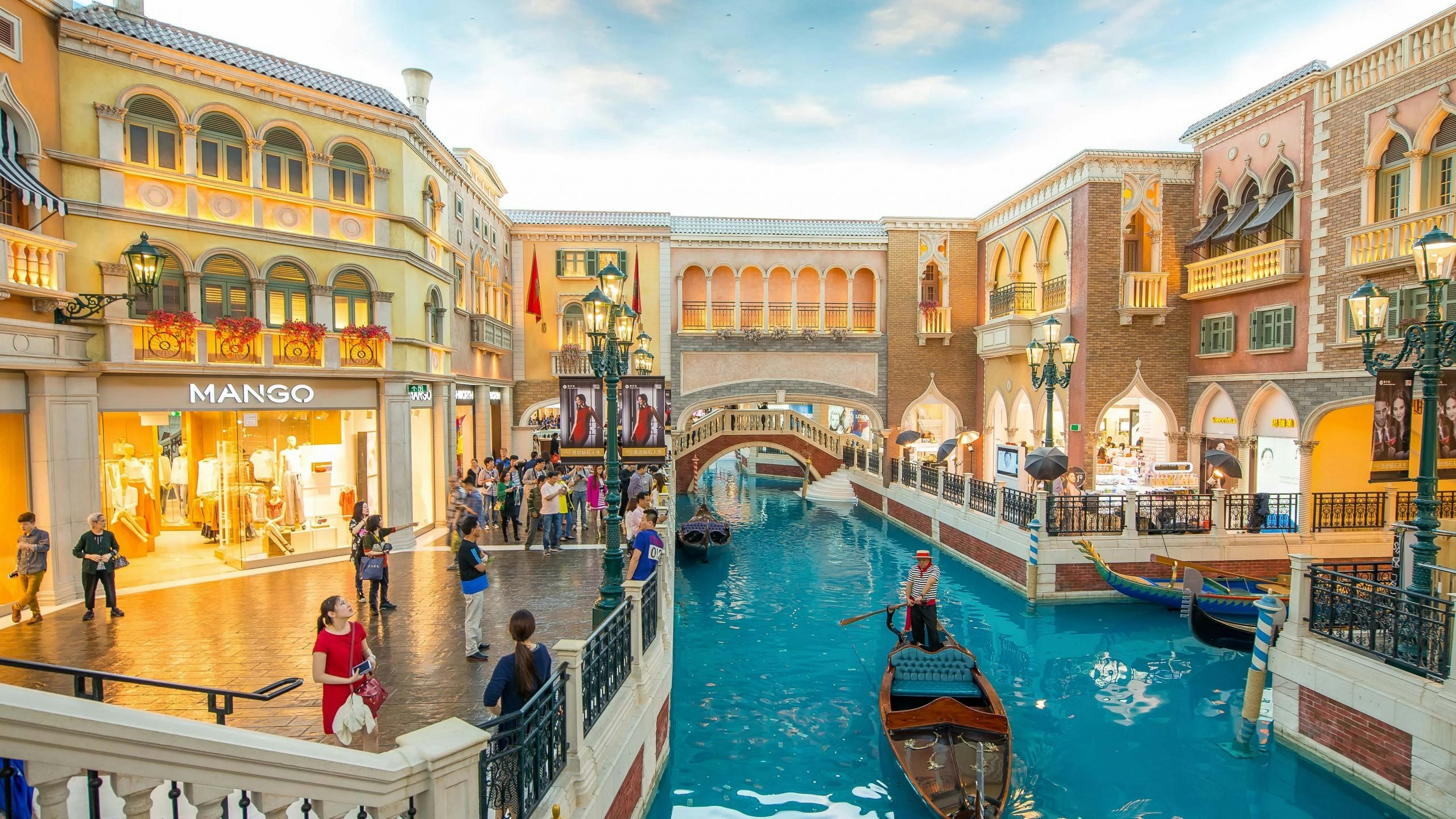
What happened
Macau is slowly, very tentatively, opening its borders — as several recent travel policy changes show. After more than two years’ suspension, Macau resumed acceptance of smart-travel e-Visa applications on November 1, allowing mainland Chinese residents to apply for tourist visas via the pre-pandemic online system rather than the more cumbersome in-person process (which limited many visitors). There is no quarantine on arrival, just a series of COVID tests.
Macau’s Chief Executive Ho Let Seng stated that the move was aimed at reviving the city’s tourism-dependent economy. For the past two and a half years, the territory's famously lucrative casino, entertainment, retail, Famp;B, and travel sectors have been devastated by the pandemic and consequent lack of tourism.
The Macau Government Tourism Office (MGTO) has also announced that the city is ready to welcome package tours from mainland China starting this month. The Greater China territory has been slow to bring back travel; only on September 1 did it lift the entry ban for non-resident foreign nationals from 41 countries, including Australia, Canada, the UK, and the US. But testing, a week-long hotel quarantine, and three days of self-monitoring remain necessary — making it still unattractive for international tourism.
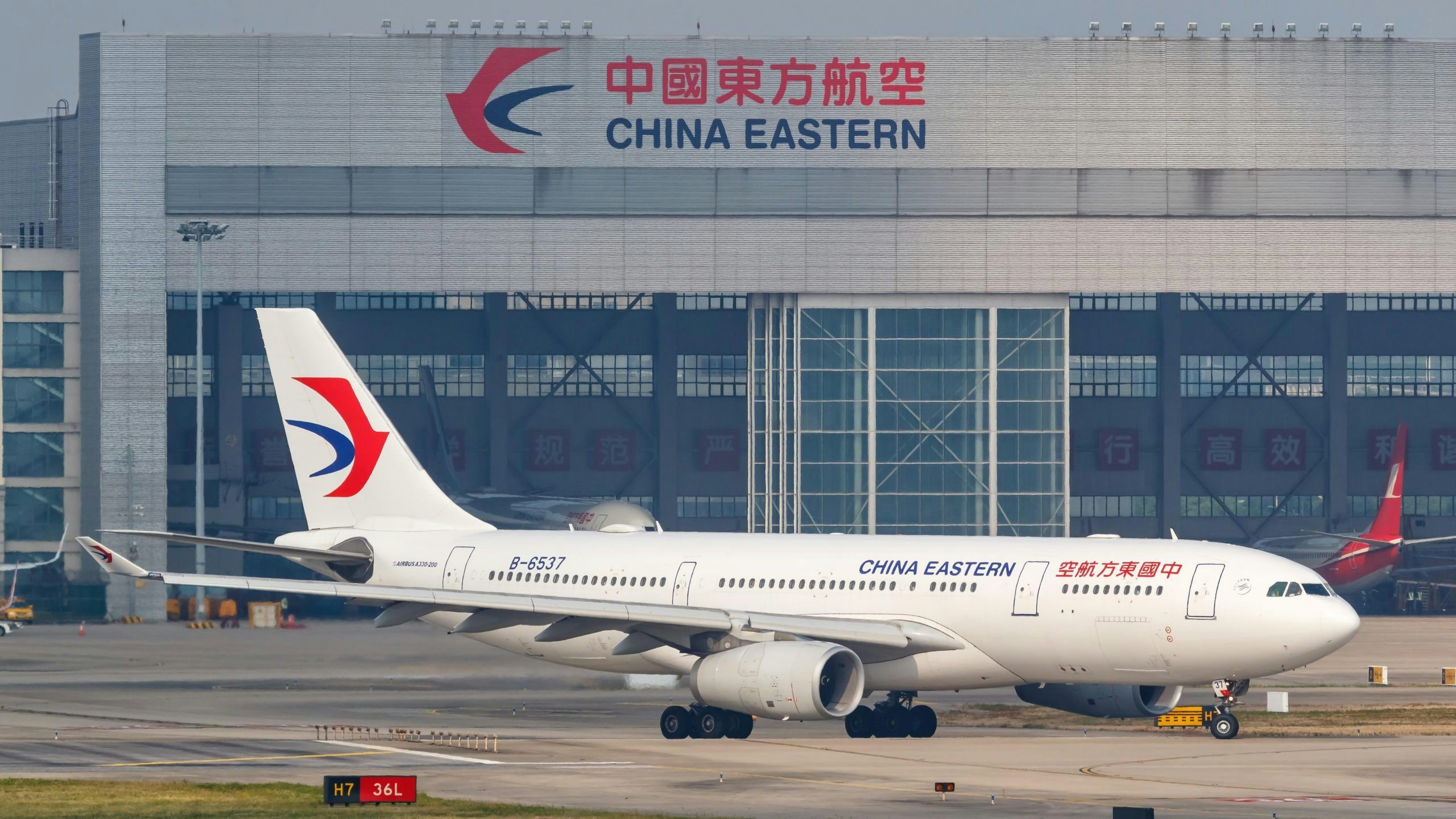
The Jing Take
The city’s economy has been hammered due to Beijing’s and its own strict COVID-19 controls . A September visit by one of our Jing Daily China team members saw very few other tourists around the territory. The retail, gambling, hotel, and entertainment sectors have suffered the most. And so the re-introduction of streamlined Macau-mainland travel will bring a much-needed boost to the market, driving in more vacationers to the area. With the positive news about welcoming group tours, hopefully this will convert into some serious numbers as mainlanders seek to satiate their pent-up hunger for travel.
Upon release of the visa news on October 28, the popularity of "Macau" as a keyword on the Tongcheng Travel site reportedly increased by 237 percent over the previous day, while searches for Macau hotels went up by 160 percent, and queries for air tickets and flights between the mainland and Macau by 150 percent. Should casinos, brands, and retailers rejoice? Yes — but many are understandably wary of popping the champagne just yet. Instances like the recent sudden two day lock down of MGM Cotai Casino, with all guests and workers ordered to stay inside after one dealer tested positive, does not bode well.
“Although the impact of restarting the eVisa scheme was delayed by a small outbreak of a handful of Macau cases, we do expect a significant pick up now that two rounds of mass testing have found zero cases,” says Macau Retail Director of Boy London stores Peter Caplowe, who counts Sands Casino as a landlord. “We are also excited about the restarting of tour groups, which we understand are being marketed in mainland China with the dates starting from November 13. It feels like the long-awaited turnaround is starting to happen.”
Foreign labels (as well as the government) are certainly ready for a rebound after over two years of suffering. One CEO, Niccolo Ricci of luxury menswear line Stefano Ricci, wasn’t shy about lamenting “the terrible performance” of their Macau stores these last two years. But hope is on the horizon with these new, more relaxed rules beckoning to domestic tourists. Additionally, Air Macau announced on November 2 that it plans to increase the number of flights between Macau International Airport and 17 mainland Chinese destinations (like Beijing, Shanghai, Chengdu, Hangzhou) in the next two seasons, further indicating an expected influx of visitors to the territory. For the tourist and retail economy, there’s finally light at the end of the tunnel.
The Jing Take reports on a piece of the leading news and presents our editorial team’s analysis of the key implications for the luxury industry. In the recurring column, we analyze everything from product drops and mergers to heated debate sprouting on Chinese social media.
Articles Travel Requirements - Macau
Explore other articles and discussions on this topic.
05/04/2023 • FAQs
Information.
*Important Reminder : This page serves as your guidance only. AirAsia adheres to the highest standards of safety at all times. The list of travel requirements info stated here are a compilation of summarised regulations in the countries/destinations where our flights are operating. As the travel requirements worldwide continue to change from time to time, there are times when the information stated below might not be up-to-date and may be obsolete at the time you are viewing it. Therefore, for more reliable, latest, and verified information in your destinations, we strongly encourage all travelling guests to also check the travel restrictions with the respective government of your destination and arrival country / state directly prior travelling with us.
Reference:
Health – Macao SAR Government Portal
Effective 01 April 2023
All travellers are allowed to enter Macau regardless of their COVID-19 vaccination status.
Foreign travelers and China passport holders must hold valid passports with a minimum validity of 90 days.
All measures (eg. Pre-departure covid test PCR, or nucleic acid test) has been removed.
Face Mask Policy Passengers are not permitted to use the type of mask that is fitted with exhalation / breathing valves. This is in line with CDC, WHO and CAAC 6th Edition Safety Recommendations on Prevention and Control Measures During Flight. Please see our FAQ page on Prohibition of Mask with Exhalation/Breathing Valves Onboard for further information. Refer here for the usage of face masks on AirAsia flights.
We’re sorry, this site is currently experiencing technical difficulties. Please try again in a few moments. Exception: request blocked
- Skip to main content
- Skip to "About this site"
Language selection
Search travel.gc.ca.
Help us to improve our website. Take our survey !
COVID-19: travel health notice for all travellers
Macao travel advice
Latest updates: Health – editorial update
Last updated: March 13, 2024 14:01 ET
On this page
Safety and security, entry and exit requirements, laws and culture, natural disasters and climate, macao - exercise a high degree of caution.
Exercise a high degree of caution in Macao due to the risk of arbitrary enforcement of local laws.
Back to top
Petty crime such as pickpocketing and purse snatching occurs, particularly:
- at the airport
- on public transportation
- in main shopping areas and markets
- in hotel lobbies
- on crowded streets
- at tourist attractions
While in Macao:
- be vigilant in crowded locations
- don’t carry large sums of money
- ensure that your belongings, including your passport and other travel documents, are secure at all times
Credit card and ATM fraud occurs. When using debit or credit cards:
- pay careful attention when others are handling your cards
- use ATMs located inside a bank or business
- avoid using card readers with an irregular or unusual feature
- cover the keypad with one hand when entering your PIN
- check for any unauthorized transactions on your account statements
Overseas fraud
Demonstrations
Demonstrations are illegal without prior approval from the local government.
Even peaceful demonstrations can turn violent at any time. They can also lead to disruptions to traffic and public transportation.
If you participate in or are witness to a demonstration, you may be subject to scrutiny and severe legal action.
- Avoid areas where demonstrations and large gatherings are taking place
- Don’t film or take pictures of demonstrations
- Follow the instructions of local authorities
- Monitor local media for information on ongoing demonstrations
Mass gatherings (large-scale events)
Cyber security
You shouldn’t expect internet privacy. Your communications may be monitored at any time, and authorities may review the content stored or consulted on your electronic devices.
Authorities will be on the lookout for material appearing to be seditious or that is critical of mainland China and local authorities
Cyber security while travelling
Journalism and research
Journalists and other media workers in Macao are facing certain restrictions in the context of their work.
You should be particularly vigilant if researching or reporting on subjects critical of or sensitive to the government. You may face censorship.
Road safety
Roads are narrow and winding. Traffic is usually congested.
Public transportation
Public transportation is safe and reliable but may be limited outside tourist areas. Certain casinos and leisure establishments operate shuttles.
Taxis are widely available. Certain ride-sharing apps are illegal in Macao.
Most taxi drivers don’t speak English or French. If you don’t speak Chinese, you should arrange for a person to write out your destination in Chinese characters before you go.
- Use only officially marked taxis
- Negotiate fares in advance, or insist that the driver use the meter, as you may be overcharged
We do not make assessments on the compliance of foreign domestic airlines with international safety standards.
Information about foreign domestic airlines
Macao is a special administrative region (SAR) of the People’s Republic of China.
Every country or territory decides who can enter or exit through its borders. The Government of Canada cannot intervene on your behalf if you do not meet your destination’s entry or exit requirements.
We have obtained the information on this page from the Chinese authorities. It can, however, change at any time.
Verify this information with the Foreign Representatives in Canada .
Entry requirements vary depending on the type of passport you use for travel.
Before you travel, check with your transportation company about passport requirements. Its rules on passport validity may be more stringent than the country’s entry rules.
Regular Canadian passport
Your passport must be valid for at least 30 days beyond the date of expected departure from Macao.
Passport for official travel
Different entry rules may apply.
Official travel
Passport with “X” gender identifier
While the Government of Canada issues passports with an “X” gender identifier, it cannot guarantee your entry or transit through other countries. You might face entry restrictions in countries that do not recognize the “X” gender identifier. Before you leave, check with the closest foreign representative for your destination.
Other travel documents
Different entry rules may apply when travelling with a temporary passport or an emergency travel document. Before you leave, check with the closest foreign representative for your destination.
Useful links
- Foreign Representatives in Canada
- Canadian passports
Tourist visa: not required for stays of up to 30 days Business visa: not required Investment visa: required Student visa: required
As a tourist, if you wish to stay in Macao longer than 30 days, you must apply for an extension of stay at the Immigration Department of the Macao SAR.
If you plan to visit or transit through mainland China, make sure you obtain a Chinese visa before your trip.
If you plan to travel between Macao, Hong Kong and mainland China make sure you apply for a visa allowing multiple entries.
- Entry and Exit of Non-residents - Public Security Police Force of Macao
- Entry/exit requirements for mainland China
Other entry requirements
You must have an onward or return ticket and proof of sufficient funds to visit Macao, unless you can show proof of residency in China or Hong Kong.
Children and travel
Learn more about travelling with children .
Yellow fever
Learn about potential entry requirements related to yellow fever (vaccines section).
Relevant Travel Health Notices
- Global Measles Notice - 13 March, 2024
- COVID-19 and International Travel - 13 March, 2024
This section contains information on possible health risks and restrictions regularly found or ongoing in the destination. Follow this advice to lower your risk of becoming ill while travelling. Not all risks are listed below.
Consult a health care professional or visit a travel health clinic preferably 6 weeks before you travel to get personalized health advice and recommendations.
Routine vaccines
Be sure that your routine vaccinations , as per your province or territory , are up-to-date before travelling, regardless of your destination.
Some of these vaccinations include measles-mumps-rubella (MMR), diphtheria, tetanus, pertussis, polio, varicella (chickenpox), influenza and others.
Pre-travel vaccines and medications
You may be at risk for preventable diseases while travelling in this destination. Talk to a travel health professional about which medications or vaccines may be right for you, based on your destination and itinerary.
Yellow fever is a disease caused by a flavivirus from the bite of an infected mosquito.
Travellers get vaccinated either because it is required to enter a country or because it is recommended for their protection.
- There is no risk of yellow fever in this country.
Country Entry Requirement*
- Proof of vaccination is not required to enter this country.
Recommendation
- Vaccination is not recommended.
* It is important to note that country entry requirements may not reflect your risk of yellow fever at your destination. It is recommended that you contact the nearest diplomatic or consular office of the destination(s) you will be visiting to verify any additional entry requirements.
About Yellow Fever
Yellow Fever Vaccination Centres in Canada
There is a risk of hepatitis A in this destination. It is a disease of the liver. People can get hepatitis A if they ingest contaminated food or water, eat foods prepared by an infectious person, or if they have close physical contact (such as oral-anal sex) with an infectious person, although casual contact among people does not spread the virus.
Practise safe food and water precautions and wash your hands often. Vaccination is recommended for all travellers to areas where hepatitis A is present.
Measles is a highly contagious viral disease. It can spread quickly from person to person by direct contact and through droplets in the air.
Anyone who is not protected against measles is at risk of being infected with it when travelling internationally.
Regardless of where you are going, talk to a health care professional before travelling to make sure you are fully protected against measles.
Japanese encephalitis is a viral infection that can cause swelling of the brain. It is spread to humans through the bite of an infected mosquito. Risk is very low for most travellers. Travellers at relatively higher risk may want to consider vaccination for JE prior to travelling.
Travellers are at higher risk if they will be:
- travelling long term (e.g. more than 30 days)
- making multiple trips to endemic areas
- staying for extended periods in rural areas
- visiting an area suffering a JE outbreak
- engaging in activities involving high contact with mosquitos (e.g., entomologists)
Hepatitis B is a risk in every destination. It is a viral liver disease that is easily transmitted from one person to another through exposure to blood and body fluids containing the hepatitis B virus. Travellers who may be exposed to blood or other bodily fluids (e.g., through sexual contact, medical treatment, sharing needles, tattooing, acupuncture or occupational exposure) are at higher risk of getting hepatitis B.
Hepatitis B vaccination is recommended for all travellers. Prevent hepatitis B infection by practicing safe sex, only using new and sterile drug equipment, and only getting tattoos and piercings in settings that follow public health regulations and standards.
Coronavirus disease (COVID-19) is an infectious viral disease. It can spread from person to person by direct contact and through droplets in the air.
It is recommended that all eligible travellers complete a COVID-19 vaccine series along with any additional recommended doses in Canada before travelling. Evidence shows that vaccines are very effective at preventing severe illness, hospitalization and death from COVID-19. While vaccination provides better protection against serious illness, you may still be at risk of infection from the virus that causes COVID-19. Anyone who has not completed a vaccine series is at increased risk of being infected with the virus that causes COVID-19 and is at greater risk for severe disease when travelling internationally.
Before travelling, verify your destination’s COVID-19 vaccination entry/exit requirements. Regardless of where you are going, talk to a health care professional before travelling to make sure you are adequately protected against COVID-19.
The best way to protect yourself from seasonal influenza (flu) is to get vaccinated every year. Get the flu shot at least 2 weeks before travelling.
The flu occurs worldwide.
- In the Northern Hemisphere, the flu season usually runs from November to April.
- In the Southern Hemisphere, the flu season usually runs between April and October.
- In the tropics, there is flu activity year round.
The flu vaccine available in one hemisphere may only offer partial protection against the flu in the other hemisphere.
The flu virus spreads from person to person when they cough or sneeze or by touching objects and surfaces that have been contaminated with the virus. Clean your hands often and wear a mask if you have a fever or respiratory symptoms.
In this destination, rabies may be present in some wildlife species, including bats. Rabies is a deadly disease that spreads to humans primarily through bites or scratches from an infected animal.
If you are bitten or scratched by an animal while travelling, immediately wash the wound with soap and clean water and see a health care professional.
Before travel, discuss rabies vaccination with a health care professional. It may be recommended for travellers who will be working directly with wildlife.
Safe food and water precautions
Many illnesses can be caused by eating food or drinking beverages contaminated by bacteria, parasites, toxins, or viruses, or by swimming or bathing in contaminated water.
- Learn more about food and water precautions to take to avoid getting sick by visiting our eat and drink safely abroad page. Remember: Boil it, cook it, peel it, or leave it!
- Avoid getting water into your eyes, mouth or nose when swimming or participating in activities in freshwater (streams, canals, lakes), particularly after flooding or heavy rain. Water may look clean but could still be polluted or contaminated.
- Avoid inhaling or swallowing water while bathing, showering, or swimming in pools or hot tubs.
Typhoid is a bacterial infection spread by contaminated food or water. Risk is higher among children, travellers going to rural areas, travellers visiting friends and relatives or those travelling for a long period of time.
Travellers visiting regions with a risk of typhoid, especially those exposed to places with poor sanitation, should speak to a health care professional about vaccination.
Insect bite prevention
Many diseases are spread by the bites of infected insects such as mosquitoes, ticks, fleas or flies. When travelling to areas where infected insects may be present:
- Use insect repellent (bug spray) on exposed skin
- Cover up with light-coloured, loose clothes made of tightly woven materials such as nylon or polyester
- Minimize exposure to insects
- Use mosquito netting when sleeping outdoors or in buildings that are not fully enclosed
To learn more about how you can reduce your risk of infection and disease caused by bites, both at home and abroad, visit our insect bite prevention page.
Find out what types of insects are present where you’re travelling, when they’re most active, and the symptoms of the diseases they spread.
There is a risk of chikungunya in this country. The risk may vary between regions of a country. Chikungunya is a virus spread through the bite of an infected mosquito. Chikungunya can cause a viral disease that typically causes fever and pain in the joints. In some cases, the joint pain can be severe and last for months or years.
Protect yourself from mosquito bites at all times. There is no vaccine available for chikungunya.
Crimean-Congo haemorrhagic fever is a viral disease that can cause fever, pain and bleeding under the skin. In some cases, it can be fatal. It spreads to humans through contact with infected animal blood or tissues, or from the bite of an infected tick. Risk is generally low for most travellers. Protect yourself from tick bites and avoid animals, particularly livestock. There is no vaccine available for Crimean-Congo haemorrhagic fever.
- In this country, risk of dengue is sporadic. It is a viral disease spread to humans by mosquito bites.
- Dengue can cause flu-like symptoms. In some cases, it can lead to severe dengue, which can be fatal.
- The level of risk of dengue changes seasonally, and varies from year to year. The level of risk also varies between regions in a country and can depend on the elevation in the region.
- Mosquitoes carrying dengue typically bite during the daytime, particularly around sunrise and sunset.
- Protect yourself from mosquito bites . There is no vaccine or medication that protects against dengue fever.
Animal precautions
Some infections, such as rabies and influenza, can be shared between humans and animals. Certain types of activities may increase your chance of contact with animals, such as travelling in rural or forested areas, camping, hiking, and visiting wet markets (places where live animals are slaughtered and sold) or caves.
Travellers are cautioned to avoid contact with animals, including dogs, livestock (pigs, cows), monkeys, snakes, rodents, birds, and bats, and to avoid eating undercooked wild game.
Closely supervise children, as they are more likely to come in contact with animals.
Person-to-person infections
Stay home if you’re sick and practise proper cough and sneeze etiquette , which includes coughing or sneezing into a tissue or the bend of your arm, not your hand. Reduce your risk of colds, the flu and other illnesses by:
- washing your hands often
- avoiding or limiting the amount of time spent in closed spaces, crowded places, or at large-scale events (concerts, sporting events, rallies)
- avoiding close physical contact with people who may be showing symptoms of illness
Sexually transmitted infections (STIs) , HIV , and mpox are spread through blood and bodily fluids; use condoms, practise safe sex, and limit your number of sexual partners. Check with your local public health authority pre-travel to determine your eligibility for mpox vaccine.
Tuberculosis is an infection caused by bacteria and usually affects the lungs.
For most travellers the risk of tuberculosis is low.
Travellers who may be at high risk while travelling in regions with risk of tuberculosis should discuss pre- and post-travel options with a health care professional.
High-risk travellers include those visiting or working in prisons, refugee camps, homeless shelters, or hospitals, or travellers visiting friends and relatives.
Medical services and facilities
Good medical care is available in major hospitals. Payment up front is often expected.
Make sure you get travel insurance that includes coverage for medical evacuation and hospital stays.
Travel health and safety
Keep in Mind...
The decision to travel is the sole responsibility of the traveller. The traveller is also responsible for his or her own personal safety.
Be prepared. Do not expect medical services to be the same as in Canada. Pack a travel health kit , especially if you will be travelling away from major city centres.
You must abide by local laws.
Learn about what you should do and how we can help if you are arrested or detained abroad .
National security law
The National security law for Macao came into effect in 2009. Activities considered as national security violations are broadly and vaguely defined. They could include activities that are not considered illegal in Canada and that occurred outside of Macao.
In May 2023, local authorities' power to enforce laws outside of Macao was expanded but the details of its implementation remain vague.
You risk being arbitrarily detained on national security grounds, even while you are transiting through Macao. You could be subject to transfer to mainland China for prosecution. Penalties are severe and include long prison sentences.
Bans and sanctions
The Chinese government may ban or sanction entities or individuals for actions, including oral or written statements, and associations with entities that are critical of:
- the Communist Party of China
- the Chinese government
- Chinese leaders and policies
The Government of the People’s Republic of China does not publicize a list of banned or sanctioned entities or individuals, and the implementation of bans or sanctions remains vague. The effect on individuals associated with banned or sanctioned entities is unknown.
It could include:
- a ban on travel to mainland China, Hong Kong and Macao
- freezing of assets
- prohibition of business or association with Chinese citizens and organizations
If you believe you may be subject of a ban or sanctions, consult a lawyer and contact the closest office of the Government of Canada.
Penalties for possession, use or trafficking of illegal drugs are severe. Convicted offenders can expect jail sentences and heavy fines.
Drugs, alcohol and travel
Photography
Photography of military installations, government buildings may be restricted. Seek permission from local authorities before taking photographs.
Taking photographs in the gambling areas of the casinos is prohibited.
Dual citizenship
The Nationality Law of the People's Republic of China applies in the Macao Special Administrative Region (MSAR). Under this law, dual citizenship is not legally recognized in Macao.
If local authorities consider you a citizen of China, they may refuse to grant you access to Canadian consular services. This will prevent us from providing you with those services.
If you are a Canadian dual citizen born in Macao or with current or previous Macao residency, you need to complete a declaration of nationality in order to be treated as a Canadian citizen. Consult the Macao Department of Identification regarding this process.
- More information about naturalization - Macao Department of Identification
- General information for travellers with dual citizenship
International Child Abduction
The Hague Convention on the Civil Aspects of International Child Abduction is an international treaty. It can help parents with the return of children who have been removed to or retained in certain countries in violation of custody rights. The convention applies between Canada and Macao.
If your child was wrongfully taken to, or is being held in Macao, and if the applicable conditions are met, you may apply for the return of your child to the Macao court.
If you are in this situation:
- act as quickly as you can
- contact the Central Authority for your province or territory of residence for information on starting an application under The Hague Convention
- consult a lawyer in Canada and in Macao to explore all the legal options for the return of your child
- report the situation to the nearest Canadian government office abroad or to the Vulnerable Children’s Consular Unit at Global Affairs Canada by calling the Emergency Watch and Response Centre
If your child was removed from a country other than Canada, consult a lawyer to determine if The Hague Convention applies.
Be aware that Canadian consular officials cannot interfere in private legal matters or in another country’s judicial affairs.
- List of Canadian Central Authorities for the Hague Convention
- International Child Abduction: A Guidebook for Left-Behind Parents
- Travelling with children
- The Hague Convention - Hague Conference on Private International Law
- Canadian embassies and consulates by destination
- Emergency Watch and Response Centre
Traffic drives on the left.
You should carry an international driving permit. If you are a resident of Macao, you can exchange your Canadian licence for a local one under certain conditions.
- Foreign licence exchange - Government of Macao
- More about the International Driving Permit
The currency is the Macao pataca (MOP). Hong Kong dollars are also accepted.
Upon entering or leaving Macao, you must make a declaration to customs if you travel with more than MOP 120,000 or the equivalent in other currencies. The sum can be in cash, cheques, money orders, traveller’s cheques or any other convertible assets.
Typhoons and monsoon
The rainy (or monsoon) season extends from May to October. Typhoons usually occur between April and October.
During this period, even small storm can quickly develop into typhoons. These severe storms can put you at risk and hamper the provision of essential services.
Severe rainstorms have occasionally caused flooding and landslides, resulting in loss of life and damage to infrastructure.
The Macao observatory issues alerts before a significant storm or other meteorological risk.
If you decide to travel to Macao during the rainy season:
- know that you may expose yourself to safety risks
- be prepared to change your travel plans on short notice, including cutting short or cancelling your trip
- stay informed of the latest regional weather forecasts
- carry emergency contact information for your airline or tour operator
- follow the advice and instructions of local authorities
- Current weather and alerts - Macao Meteorological and Geophysical Bureau
- Tornadoes, cyclones, hurricanes, typhoons and monsoons
- Large-scale emergencies abroad
Heat and humidity
Humidity and heat are most severe during the hot season, from May to October.
Know the symptoms of dehydration and heatstroke, both of which can be fatal.
Air pollution
Air pollution can be severe in Macao.
During periods of high pollution:
- limit outdoor activities
- monitor local media and air pollution levels
- follow the instructions of local authorities
Air pollution in Macao - World Air Quality Index
Local services
Dial 112 for emergency assistance.
Consular assistance
For emergency consular assistance, call the Consulate General of Canada in Hong Kong and follow the instructions. At any time, you may also contact the Emergency Watch and Response Centre in Ottawa.
The decision to travel is your choice and you are responsible for your personal safety abroad. We take the safety and security of Canadians abroad very seriously and provide credible and timely information in our Travel Advice to enable you to make well-informed decisions regarding your travel abroad.
The content on this page is provided for information only. While we make every effort to give you correct information, it is provided on an "as is" basis without warranty of any kind, expressed or implied. The Government of Canada does not assume responsibility and will not be liable for any damages in connection to the information provided.
If you need consular assistance while abroad, we will make every effort to help you. However, there may be constraints that will limit the ability of the Government of Canada to provide services.
Learn more about consular services .

Risk Levels
take normal security precautions.
Take similar precautions to those you would take in Canada.
Exercise a high degree of caution
There are certain safety and security concerns or the situation could change quickly. Be very cautious at all times, monitor local media and follow the instructions of local authorities.
IMPORTANT: The two levels below are official Government of Canada Travel Advisories and are issued when the safety and security of Canadians travelling or living in the country or region may be at risk.
Avoid non-essential travel
Your safety and security could be at risk. You should think about your need to travel to this country, territory or region based on family or business requirements, knowledge of or familiarity with the region, and other factors. If you are already there, think about whether you really need to be there. If you do not need to be there, you should think about leaving.
Avoid all travel
You should not travel to this country, territory or region. Your personal safety and security are at great risk. If you are already there, you should think about leaving if it is safe to do so.
Macau to drop COVID tests for arriving passengers
- Medium Text
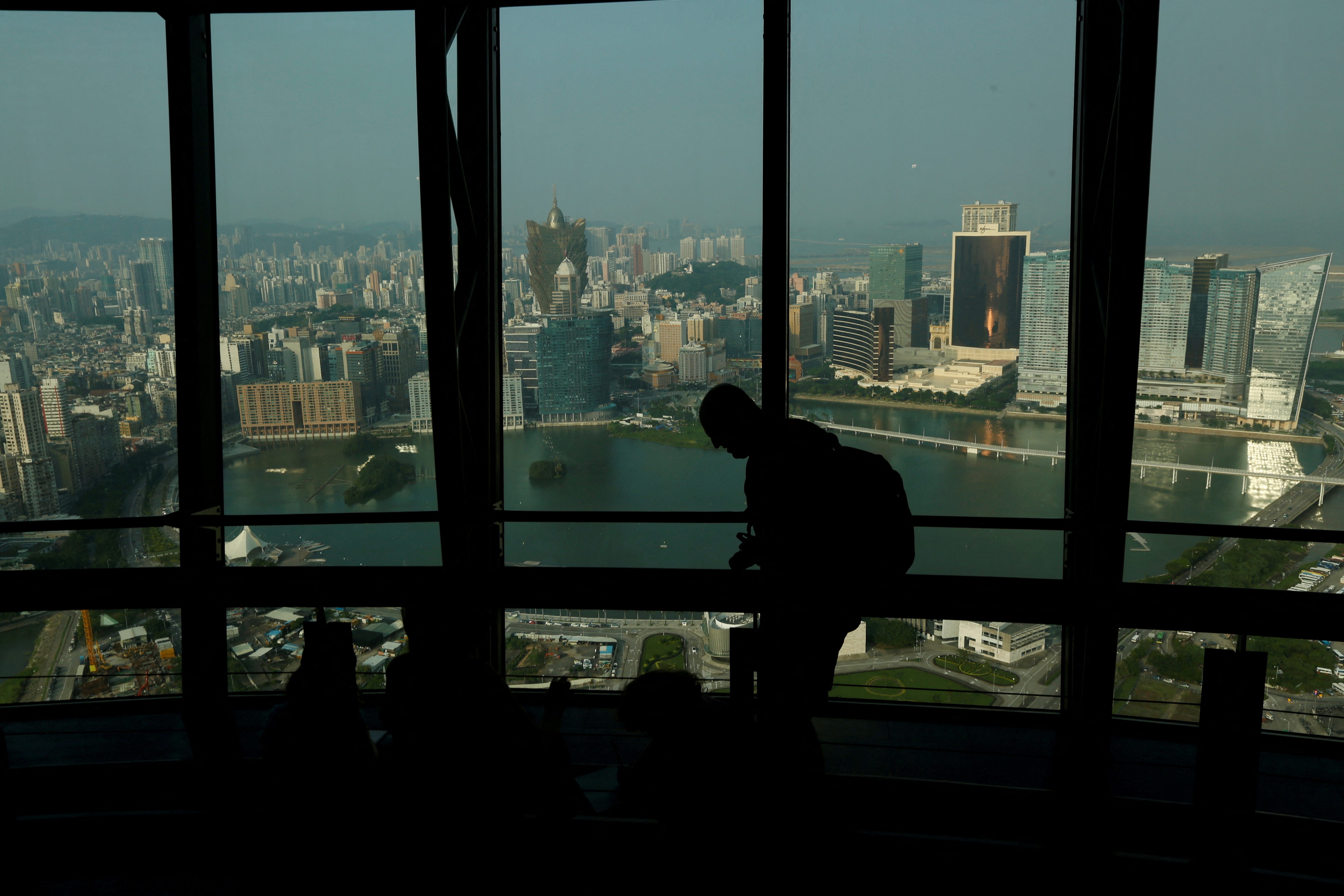
Sign up here.
Reporting by Twinnie Siu, Meg Shen and Farah Master; Editing by Toby Chopra, Kirsten Donovan
Our Standards: The Thomson Reuters Trust Principles. New Tab , opens new tab
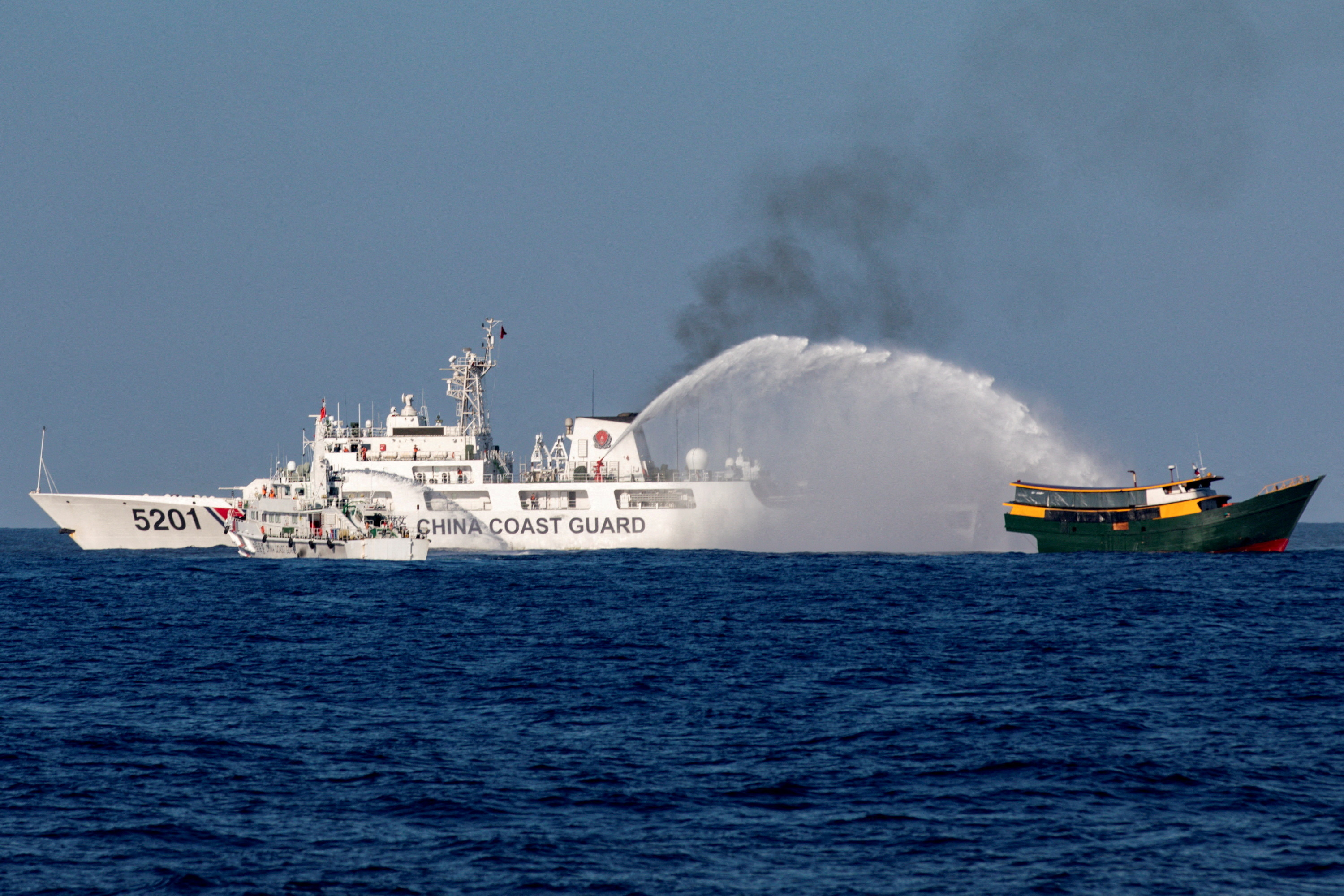
World Chevron
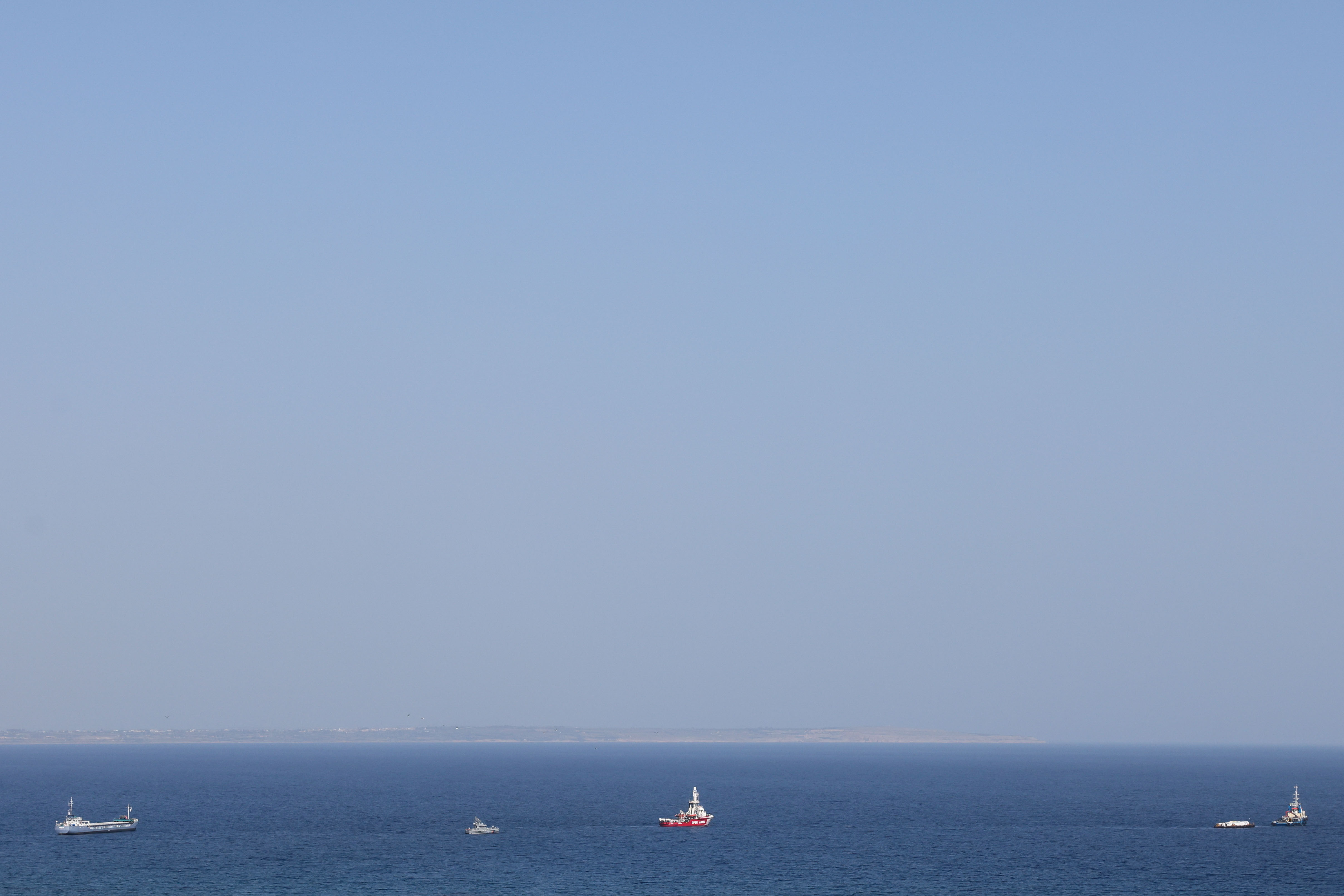
Gaza aid from Cyprus resumes after pause following aid worker killings, source says
Aid shipments to Gaza from Cyprus resumed late on Friday, a Cypriot source said, with a ship carrying food to the besieged Palestinian enclave after a pause following Israel's killing of seven aid workers.
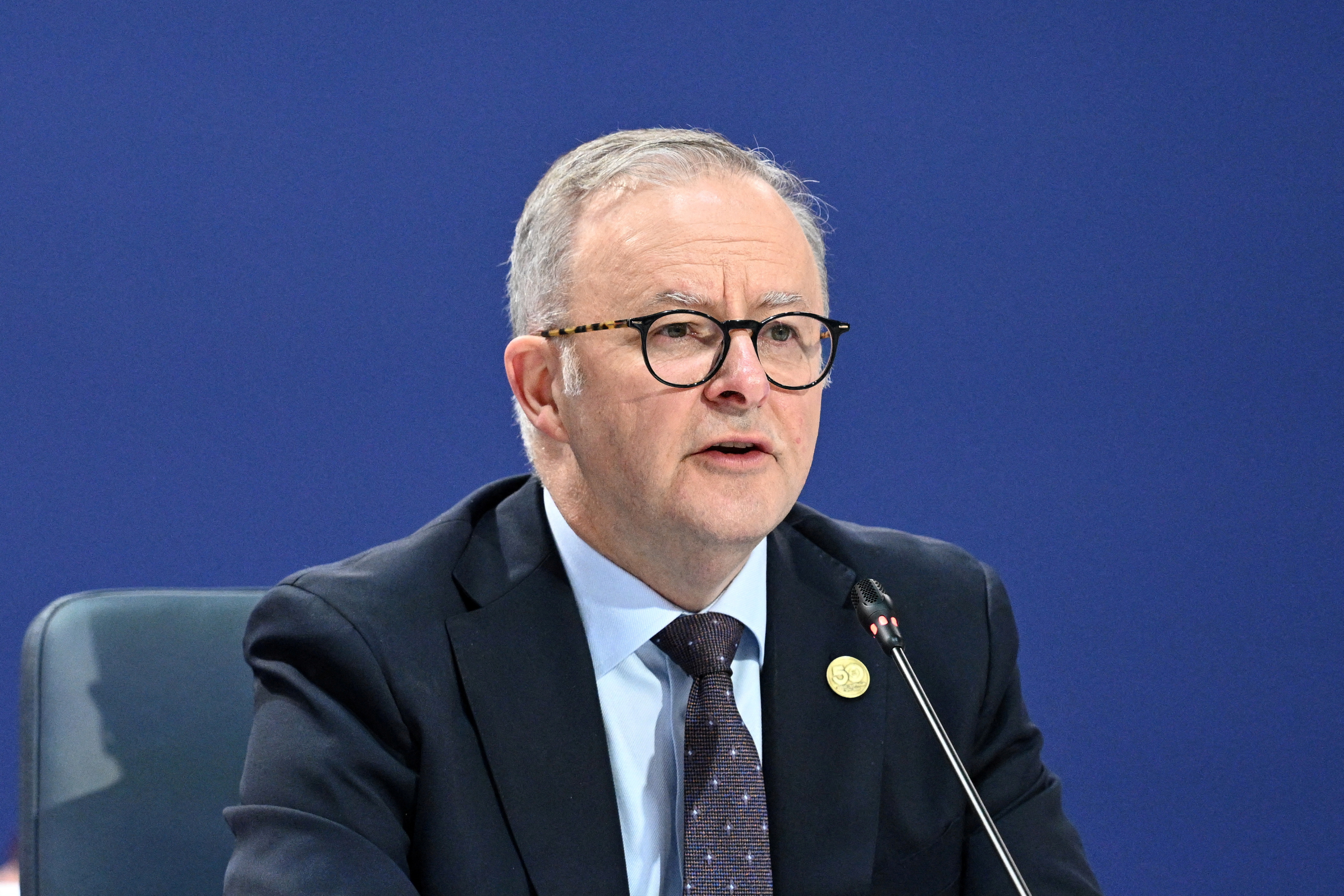
Cookies on GOV.UK
We use some essential cookies to make this website work.
We’d like to set additional cookies to understand how you use GOV.UK, remember your settings and improve government services.
We also use cookies set by other sites to help us deliver content from their services.
You have accepted additional cookies. You can change your cookie settings at any time.
You have rejected additional cookies. You can change your cookie settings at any time.
- Passports, travel and living abroad
- Travel abroad
- Foreign travel advice
Warnings and insurance
The Foreign, Commonwealth & Development Office ( FCDO ) provides advice about risks of travel to help British nationals make informed decisions. Find out more about FCDO travel advice .
This travel advice covers the Macao Special Administrative Region (SAR). For mainland China, see travel advice for China .
Before you travel
No travel can be guaranteed safe. Read all the advice in this guide and any specific travel advice that applies to you:
- women travellers
- disabled travellers
- LGBT+ travellers
- solo and independent travel
- volunteering and adventure travel
Follow and contact FCDO travel on Twitter , Facebook and Instagram . You can also sign up to get email notifications .
Travel insurance
If you choose to travel, research your destinations and get appropriate travel insurance . Insurance should cover your itinerary, planned activities and expenses in an emergency.
Related content
Is this page useful.
- Yes this page is useful
- No this page is not useful
Help us improve GOV.UK
Don’t include personal or financial information like your National Insurance number or credit card details.
To help us improve GOV.UK, we’d like to know more about your visit today. We’ll send you a link to a feedback form. It will take only 2 minutes to fill in. Don’t worry we won’t send you spam or share your email address with anyone.

Search Smartraveller

Latest update
Exercise a high degree of caution in Macau.
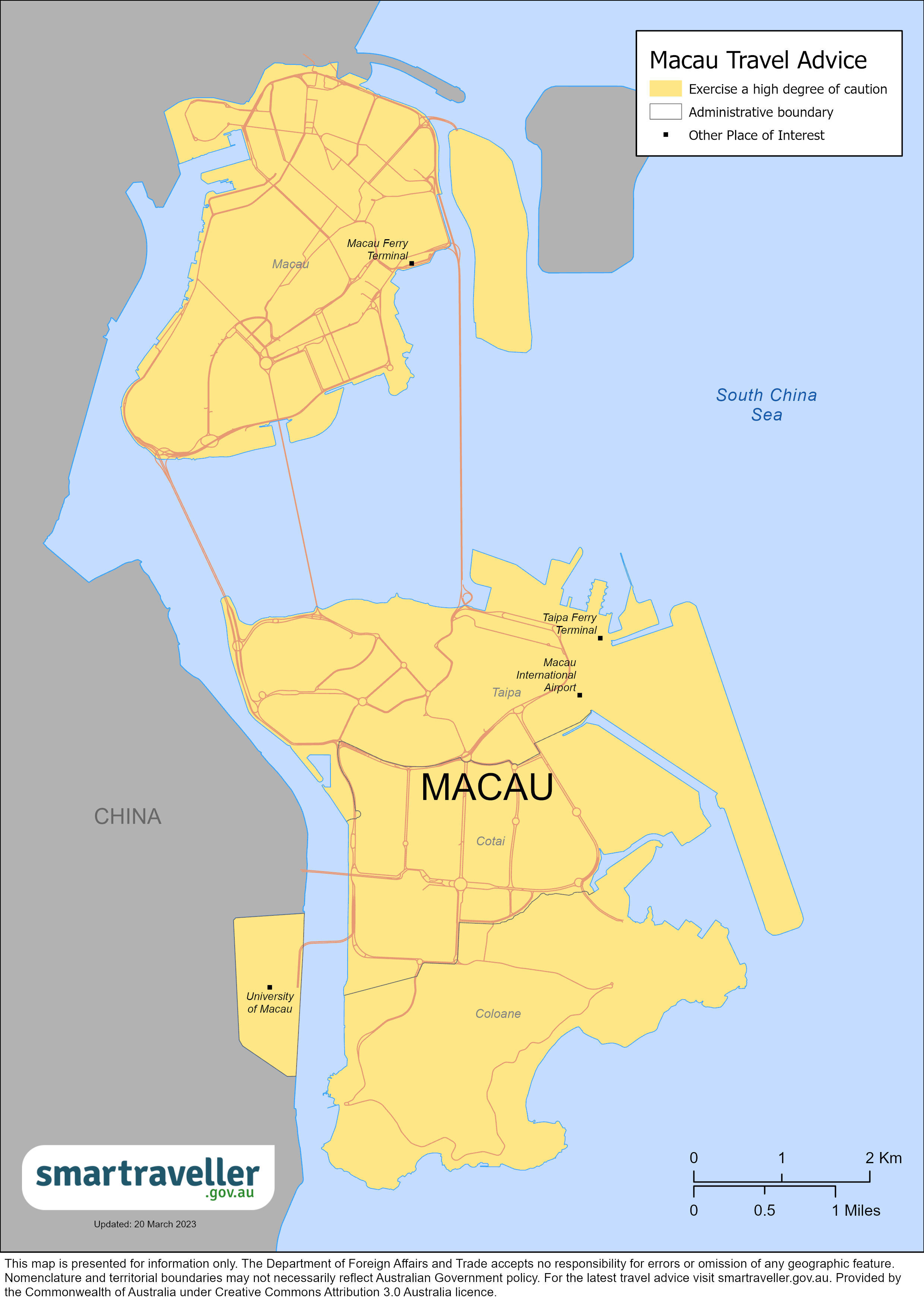
Macau (PDF 243.59 KB)
Asia (PDF 2.21 MB)
Local emergency contacts
Fire and rescue, medical, and police.
Call any number for all emergency services:
Advice levels
- Violent crime is rare in Macau, but some petty crime happens. Thieves target tourist spots and crowded places, such as shopping centres, markets, the airport and casinos. Take care of your belongings.
- Drink spiking happens. Don't accept food, drink, cigarettes or gum from strangers. Don’t leave your food or drinks unattended.
- Be careful when using ATMs, as theft happens. Use ATMs in shops or banks rather than on the street. If someone approaches you, cancel your transaction before talking to them.
- Protests can turn violent. It's illegal to protest without Macau government approval. Avoid large public gatherings.
- Macau experiences typhoons and flooding of low-lying areas. These can disrupt transport and essential services. Typhoon season is between May and October. Follow the advice of local officials and contact your travel operator about delays.
Full travel advice: Safety
- Macau has very high humidity from May to October and can have very high pollution levels. If you have a heart or breathing condition, do less physical activity when the air quality index health risk is high and reduce physical and outdoor activities on very humid days.
- Macau sometimes has outbreaks of dengue. Japanese encephalitis is also a risk.
- Hand, foot and mouth disease (HFMD) is common. Wash your hands thoroughly and often.
- Waterborne, foodborne and other infectious diseases include tuberculosis and hepatitis. Avoid raw or undercooked food. Avoid contact with animals.
- Macau's medical facilities are adequate. You may need to pay up-front. If you're seriously ill or injured, you may need medical evacuation to Hong Kong. Ensure your travel insurance covers this.
Full travel advice: Health
- Macau's Law on Safeguarding National Security may be interpreted broadly, and you could break the law without intending to. The law could be applied to activities that occurred outside Macau, including social media posts.
- Don't use or carry illegal drugs. Penalties include heavy fines and jail terms.
- Chinese law doesn't recognise dual nationality. The Australian Government may be unable to help if you enter Macau on a travel document other than your Australian passport or if you're deemed a Macau or Chinese national. If you're travelling from Macau to Hong Kong or mainland China, use your Australian passport.
- If you're a dual national of Chinese descent, you can register your Australian citizenship with the Macau Identification Bureau . If Macau authorities consider you a citizen of China, they may refuse to grant you access to Australian consular services. This will prevent the Australian Government from providing you with those services.
Full travel advice: Local laws
- If you're visiting for tourism for less than 30 days, you generally won't need a visa. Macau is a Special Administrative Region (SAR) of the People's Republic of China. It has separate visa and entry administration to Hong Kong and mainland China. Entry and exit conditions can change at short notice. You should contact the nearest embassy or consulate of China for the latest tourist, business and student visa information.
- The local currency is the Macanese Pataca (MOP). Some shops also accept Hong Kong dollars and Chinese yuan. Most places accept credit cards.
- Only use licensed taxis or reputable limousine services. Insist on using the meter.
Full travel advice: Travel
Local contacts
- The Consular Services Charter details what we can and can't do to help you overseas.
- Australia doesn't have an embassy in Macau. For consular help, contact the Australian Consulate-General in Hong Kong .
- To stay up to date with local information, follow the Consulate-General's social media accounts.
Full travel advice: Local contacts
Full advice
Petty crime.
There's very little violent crime in Macau. You could encounter pickpocketing and street theft.
Thieves target tourist spots and crowded places such as crowded shopping areas, markets and casinos.
Take care of your belongings, especially in crowded places.
Drink spiking
Drink spiking happens.
To reduce your risk of drink spiking:
- be careful of people who approach you in bars, clubs and casinos
- don't accept drinks, food, gum or cigarettes from strangers or new friends
- don't leave food or drinks unattended
More information:
Partying safety
Take care withdrawing money from an ATM:
- avoid using ATMs on the street — use those inside banks, shops, shopping centres or casinos
- if someone approaches you at an ATM, cancel your transaction before speaking to them
Kidnapping
Kidnapping can happen anywhere, anytime, including destinations that are typically at lower risk. The Australian Government's longstanding policy is that it doesn't make payments or concessions to kidnappers.
Cyber security
You may be at risk of cyber-based threats during overseas travel to any country. Digital identity theft is a growing concern. Your devices and personal data can be compromised, especially if you’re connecting to Wi-Fi, using or connecting to shared or public computers, or to Bluetooth.
Social media can also be risky in destinations where there are social or political tensions, or laws that may seem unreasonable by Australian standards. Travellers have been arrested for things they have said on social media. Don't comment on local or political events on your social media.
More information:
- Cyber security when travelling overseas
Civil unrest and political tension
Demonstrations and protests.
Public protests and events that draw large groups of people can turn violent.
To avoid the risk of violent unrest:
- avoid large gatherings and protests
- monitor the media for possible unrest and avoid those areas
- follow the advice of local authorities
Demonstrations and civil unrest
Terrorism is a threat worldwide.
Terrorist threats
Climate and natural disasters
Macau experiences typhoons and flooding of low lying areas.
Local safety rules require businesses and transport services to close during typhoons or very heavy rain.
Authorities may delay or suspend flights and ferries into and out of Macau. Contact your travel operator or airline to find out about delays.
If there's a typhoon:
- monitor weather forecasts and plan accordingly
- know your hotel or cruise ship's evacuation plans
- secure your passport in a safe, waterproof location
If there's a natural disaster or severe weather :
- monitor the news and other local information sources
- monitor the Global Disaster Alert and Coordination System
- keep in contact with friends and family
- Macao Government Tourism Office
- Macau Meteorological and Geophysical Bureau
- World Meteorological Organization Severe Weather Information Centre
Travel Insurance
Get comprehensive travel insurance before you leave.
Your policy needs to cover all overseas medical costs, including medical evacuation. The Australian Government won't pay for these costs.
If you can't afford travel insurance, you can't afford to travel. This applies to everyone, no matter how healthy and fit you are.
If you're not insured, you may have to pay many thousands of dollars up-front for medical care.
- what activities and care your policy covers
- that your insurance covers you for the whole time you'll be away
Physical and mental health
Consider your physical and mental health before you travel, especially if you have an existing medical condition.
See your doctor or travel clinic to:
- have a basic health check-up
- ask if your travel plans may affect your health
- plan any vaccinations you need
Do this at least 8 weeks before you leave.
If you have immediate concerns for your welfare or the welfare of another Australian, call the 24-hour Consular Emergency Centre on +61 2 6261 3305 or contact your nearest Australian Embassy, High Commission or Consulate to discuss counselling hotlines and services available in your location.
- General health advice
- Healthy holiday tips (Healthdirect Australia)
Medications
Not all medication available over the counter or by prescription in Australia is available in other countries. Some may even be considered illegal or a controlled substance, even if prescribed by an Australian doctor.
If you plan to bring medication, check if it's legal in Macau. Take enough legal medicine for your trip.
Carry a copy of your prescription or a letter from your doctor stating:
- what the medication is
- your required dosage
- that it's for personal use
- Serviços de Alfândega de Macau (Only available in Portuguese or Chinese; for further enquiries, please contact the nearest Chinese Embassy or consulate)
Health risks
Macau experiences very high humidity during summer, from May to October. Reduce physical exertion and outdoor activities on very humid days.
Air pollution
High levels of air pollution may trigger bronchial, sinus or asthma conditions.
If you have existing heart or breathing difficulties, reduce physical and outdoor activities on days with high pollution.
For up-to-date air quality reports, visit the Macau Meteorological and Geophysical Bureau .
Insect-borne diseases
Outbreaks of mosquito-borne illnesses, including dengue , sometimes occur.
To protect yourself from disease:
- ensure your accommodation is insect-proof
- use insect repellent
- wear long, loose, light-coloured clothing
Hand, foot and mouth disease
Hand, foot and mouth disease (HFMD) is common. Severe outbreaks sometimes occur. Outbreaks usually start in March or April and peak in May. Sometimes, they last until October.
HFMD mainly affects children aged younger than 10 years, but adult cases, particularly in young adults, occur.
HFMD is spread by direct contact with discharges of infected people.
Practise good hygiene. Wash your hands carefully and frequently.
Other health risks
Waterborne, foodborne and other infectious diseases occur sometimes. These include:
- tuberculosis
- hepatitis
- Japanese encephalitis
To protect yourself from illness:
- drink only filtered water or bottled water from bottles with sealed lids
Seek medical advice if you have a fever or diarrhoea.
Medical care
Medical facilities.
The standard of medical facilities in Macau is adequate.
Private hospitals will ask to see proof of your travel insurance before treating you. They may ask you to guarantee payment or pay a deposit up-front.
If you become seriously ill or injured, you may need to be evacuated to Hong Kong. Medical evacuation can be very expensive.
You're subject to all local laws and penalties, including those that may appear harsh by Australian standards. Research local laws before travelling.
Macau's Law on Safeguarding National Security could be interpreted broadly. You could break the law without intending to. The law could be applied to activities that occurred outside Macau, including social media posts.
If you're arrested or jailed, the Australian Government will do what it can to help you under our Consular Services Charter . But we can't get you out of trouble or out of jail.
The Australian Government can't intervene in the Macau judicial process.
If local authorities consider you a citizen of China, they may refuse to grant you access to Australian consular services. This will prevent the Australian Government from providing you with those services.
Possessing illegal drugs of any kind, including marijuana, can result in penalties that include heavy fines and jail time.
Carrying or using drugs
Macau has strict laws around importing and possessing weapons. This includes stun guns, tasers and items that look like weapons, such as:
- fashion accessories
You must have a permit to import, possess or buy these items. This includes items sold in local markets. Apply in advance for a permit from local authorities.
It's illegal to:
- join a public protest without Macau government approval
- take photos of military installations
Macau Government Tourism Office — Accommodation
Australian laws
Some Australian criminal laws still apply when you're overseas. If you break these laws, you may face prosecution in Australia.
Staying within the law and respecting customs
Dual citizenship
The Nationality Law of the People's Republic of China applies in the Macau Special Administrative Region. Under this law, dual citizenship is not legally recognised in Macau. However, Macau's law allows dual nationals of Chinese descent to register their Australian nationality with the Macau Identification Bureau .
If local authorities consider you a citizen of China, they may refuse you access to Australian consular services. This can happen even if you entered Macau on an Australian or other foreign passport and you:
- haven't renounced your Chinese citizenship according to Chinese law
- haven't formally advised the Chinese authorities of your Australian citizenship
- continue to maintain a passport issued by the Macau Special Administrative Region or by China.
Get professional legal advice if you're not sure of your citizenship status under Chinese law.
If you plan to enter mainland China or Hong Kong from Macau, travel on your Australian passport .
Local authorities may not allow consular access if you enter Macau on a travel document other than your Australian passport or if local authorities identify you as a Chinese national.
- Dual nationals
- Travel advice for China
Visas and border measures
Every country or territory decides who can enter or leave through its borders. For specific information about the evidence you'll need to enter a foreign destination, check with the nearest embassy, consulate or immigration department of the destination you're entering.
Macau is a Special Administrative Region (SAR) of the People's Republic of China. It has separate visa and entry administration to Hong Kong and mainland China.
If you visit for tourism for less than 30 days, you generally won't need a visa. However, entry and exit conditions can change at short notice. For details about visas, currency, customs and quarantine rules, contact or visit:
- Macau Immigration Service
- Macau Government Tourist Office
If you need a visa, apply for it through your nearest PRC embassy or consulate .
Travel between Macau and mainland China
You'll need a visa if you plan to travel between Macau and mainland China.
If you plan to return to China after visiting Macau, get a multiple-entry visa for China. If you don't get this visa, you'll need a new visa to re-enter China. Get your visa before leaving Australia.
If you've recently changed your passport, but your Chinese visa is still in the old passport, take both passports with you. Officials may ask you to present your previous passport and Chinese visa.
If you have previously visited China and plan to apply for a Chinese visa at the border of Zhuhai and Macau, carry your previous Chinese visa with you, even if it's in a recently replaced passport.
Border authorities may refuse to issue you with a new Chinese visa if you have a previous one but can't show it to them.
The paper slip provided upon entry to Macau includes your date of entry and your latest departure date. The slip is needed at hotel check-in and when requested by local authorities. Replacement slips are available from the Macau Border Control Department or a police station.
- Macau government website
- Travel advice for Hong Kong
Some countries won't let you enter unless your passport is valid for 6 months after you plan to leave that country. This can apply even if you're just transiting or stopping over.
Some foreign governments and airlines apply the rule inconsistently. Travellers can receive conflicting advice from different sources.
You can end up stranded if your passport is not valid for more than 6 months.
The Australian Government does not set these rules. Check your passport's expiry date before you travel. If you're not sure it'll be valid for long enough, consider getting a new passport .
Lost or stolen passport
Your passport is a valuable document. It's attractive to people who may try to use your identity to commit crimes.
Some people may try to trick you into giving them your passport. Always keep it in a safe place.
If your passport is lost or stolen, tell the Australian Government as soon as possible:
In Australia, contact the Australian Passport Information Service .
If you're overseas, contact the nearest Australian embassy or consulate .
Passport with ‘X’ gender identifier
Although Australian passports comply with international standards for sex and gender, we can’t guarantee that a passport showing 'X' in the sex field will be accepted for entry or transit by another country. Contact the nearest embassy, high commission or consulate of your destination before you arrive at the border to confirm if authorities will accept passports with 'X' gender markers.
- LGBTI travellers
The currency in Macau is the Macanese Pataca (MOP).
Some shops also accept Hong Kong dollars and Chinese yuan.
Travellers in and out of Macau may need to declare Cash and Bearer Negotiable Instruments . Make a written declaration if you're carrying more than the equivalent of MOP120,000.
Credit cards are widely accepted in Macau.
Take care using ATMs as petty crime occurs. See Safety
Macau Customs Service
Local travel
Driving permit.
To drive in Macau, you need both:
a valid international driving permit (IDP)
your current Australian driver's licence
If you stay in Macau longer than 14 days, you must register your driving licence with the Macau Public Security Police Force (CPSP).
Get your IDP in Australia before you leave.
You may not be covered by your travel and vehicle insurances if you drive without an IDP.
Road travel
Macau has a well-developed road network of standards similar to those of an Australian city.
Check you have adequate insurance before driving.
Find out about local road rules and practices.
- Driving or riding
- Registration of Driving Licence
Motorcycles
Check if your travel insurance policy covers you when riding a motorbike.
To remain covered by your insurance, you may have to follow local laws.
Always wear a helmet.
Taxis and ridesharing services
Use only licensed taxis or reputable limousine services. Arrange them through your hotel if you can. Always insist that the meter is used and be prepared to pay cash for taxis. Many taxis don't have seatbelts available for use in the back seat.
Rideshare services are illegal in Macau. Police have issued fines to drivers and passengers of unlicensed taxi services.
Public transport
Public buses are inexpensive and frequent. However, you may have difficulty finding them outside major tourist areas. Drivers generally have limited English.
- Macau Government Tourist Office — Local transportation
- Transport and getting around safely
Ferries are a common mode of transport from:
- Hong Kong and
- the Chinese mainland
Some cruise lines visit Macau.
- Travelling by boat
- Going on a cruise
A ir travel
DFAT doesn't provide information on the safety of individual commercial airlines or flight paths.
Check Macau's air safety profile with the Aviation Safety Network.
Emergencies
Depending on what you need, contact your:
- family and friends
- travel agent
- insurance provider
Always get a police report when reporting a crime.
Your insurer should have a 24-hour emergency number.
Consular contacts
Read the Consular Services Charter for what the Australian Government can and can't do to help you overseas.
Australia doesn't have an embassy in Macau.
For consular assistance, contact the Australian Consulate-General in Hong Kong.
Australian Consulate-General, Hong Kong
23/F Harbour Centre, 25 Harbour Road
Wanchai, Hong Kong
Phone: (+852) 2827 8881
Fax: (+852) 2585 4457
Website: https://hongkong.consulate.gov.au/
Facebook: Australia in Hong Kong and Macau
Check the Consulate-General website for details about opening hours and any temporary closures.
24-hour Consular Emergency Centre
In a consular emergency, if you can't contact an embassy, call the 24-hour Consular Emergency Centre on:
- +61 2 6261 3305 from overseas
- 1300 555 135 in Australia

Travelling to Macau?
Sign up to get the latest travel advice updates..
Be the first to know official government advice when travelling.
US issues level 3 travel advisory to China amid safety concerns. Here's what to know

Are you thinking about traveling to China to visit or study abroad? The U.S. government suggests reconsidering your trip for now.
According to the U.S. Department of State , traveling to China is under a level 3 travel advisory , warning Americans to reconsider. The State Department has four warning levels. The fourth is “Do not travel.”
Is it safe to travel to China right now?
The U.S. is asking Americans to reconsider traveling to China due to various reasons, including concerns about health and safety, such as the prevalence of contagious diseases like COVID-19, as well as political tensions or security risks in certain regions.
As of April 12, there are some specific areas that the U.S. is asking people to reconsider travel to. Those areas include:
- Mainland China due to the arbitrary enforcement of local laws, including exit bans and the risk of wrongful detentions.
- Exercise increased caution when traveling to the Hong Kong SAR due to the arbitrary enforcement of local laws.
- Reconsider travel to the Macau SAR due to a limited ability to provide emergency consular services.
Additionally, the U.S. government may issue travel advisories based on factors like civil unrest, natural disasters, or other hazards that could affect travelers' well-being.
Americans detained in China
Mark Swidan — a man from Houston, Texas — has been detained in China for over 10 years on drug charges. According to The Texas Tribune , Swidan was detained in China in 2012 while on a trip looking for materials for his home and business in Houston. Chinese authorities arrested him after his driver and translator were found in possession of drugs. The driver blamed Swidan, who is accused of trafficking and manufacturing methamphetamine.
A review of Swidan’s case said there were no drugs on him or in his hotel. Last year, the Republic of China’s Jiangmen Intermediate Court denied Swidan’s appeal and upheld his death penalty with a two-year suspended death sentence.
Other Americans considered wrongfully detained include Chinese American businessman Kai Li from Long Island, N.Y., and California pastor David Lin.
What countries have a Level 3 travel warning?
- Trinidad & Tobago
- El Salvador
- South Sudan
- Democratic Republic of the Congo
- Papua New Guinea
- Saudi Arabia
What countries have a Level 4 travel warning?
- Afghanistan
- Central African Republic
- North Korea (Democratic People's Republic of Korea)
- Burkina Faso
Traveling abroad? Here are some safety tips
U.S. citizens are encouraged to enroll in the State Department’s free Smart Traveler Enrollment Program and to prepare contingency plans for emergencies.
Safety tips if you're traveling outside the U.S.:
- Don't travel alone.
- Be aware of your surroundings.
- Keep a low profile.
- Try not to be flashy.
- Avoid going to places at night, especially by yourself.
Macau Travel Restrictions
Traveller's COVID-19 vaccination status
Travelling from Malaysia to Macau
Open for vaccinated visitors
COVID-19 testing
Not required
Not required for vaccinated visitors
Restaurants
Not required in public spaces, enclosed environments and public transportation.
Ready to travel?
Find flights to macau, find stays in macau, explore more countries on travel restrictions map, destinations you can travel to now, new zealand, philippines, south korea, the bahamas, united kingdom, united states, know when to go.
Sign up for email alerts as countries begin to open - choose the destinations you're interested in so you're in the know.
Can I travel to Macau from Malaysia?
Most visitors from Malaysia, regardless of vaccination status, can enter Macau.
Can I travel to Macau if I am vaccinated?
Fully vaccinated visitors from Malaysia can enter Macau without restrictions.
Can I travel to Macau without being vaccinated?
Unvaccinated visitors from Malaysia can enter Macau without restrictions.
Do I need a COVID test to enter Macau?
Visitors from Malaysia are not required to present a negative COVID-19 PCR test or antigen result upon entering Macau.
Can I travel to Macau without quarantine?
Travellers from Malaysia are not required to quarantine.
Do I need to wear a mask in Macau?
Mask usage in Macau is not required in public spaces, enclosed environments and public transportation.
Are the restaurants and bars open in Macau?
Restaurants in Macau are open. Bars in Macau are .
You are using an outdated browser. Please upgrade your browser to improve your experience.
We use cookies to improve your website experience and provide more personalized services to you, both on this website and through other media. By continuing to use this website, you agree to our use of cookies as explained in our Cookie Policy . Please read our Cookie Policy for more information on how we use cookies and how you can disable them.
New User? Register
- Manage bookings
- Cancellation
- On Behalf Booking
- MyQuotation
We're unable to sign you in because the password entered incorrect.
Your request for OTP will be sent to registered email id and mobile number, if not registered please do the same.
You exceed the OTP limit. Please try again after some time
Don't have an account?
- Contains between 8-12 alphanumeric characters.
- Can add special character but not mandatory(Only !, @, #,$,%,^,&,* to be used).
- Does not contain White spaces
I would like to be kept informed of special Promotions and offers. I hereby accept the Privacy Policy and authorize Thomascook to contact me.
Already have an account?
- Your existing Google or Facebook Id will be a Thomascook ID
- No need to remember different Ids & Passwords
- One Click login
Fill in the email Address that you used to register or book with Thomascook.
We will reset and send your new password.
Please enter the valid email address
Your request for new password has been accepted.
The new password would be emailed to the registered email address, if not registered please do the same

I accept the Privacy Policy and I authorise Thomas Cook to contact me with details
Macao Travel Guidelines
- Can Indian travel to the Macao?
Pre-Arrival
- Visa Immigration: Changes in regulations, if any? eg- biometrics, e-Visa, visa on arrival, TAT , cost, due to covid, etc.
- Visa is free for Macao
- Is a COVID medical certificate required. If yes, will it be required from a Govt vs. Private, ICMR approved, or is there a consulate pre-approved list of providers
- Negative Covid-19 test is required for India travellers. Health authorities have announced on that anyone departing from India who wishes to use the special ferry link established between the Hong Kong airport and Macau, must first present a negative Covid-19 nucleic acid test of the new type of coronavirus issued by a qualified medical institution in the country of origin.
- Negative Covid-19 test is required for India travellers
Prior to Departure
- Before departure from your country, any formalities or tests required? Any declaration?
- COVID-19 test required
- Guidelines for International Arrivals to India
- This Standard Operating Procedure shall be valid w.e.f. 01st December (00.01 Hrs IST) till further orders. Based on the risk assessment, this document shall be reviewed from time to time.
- A.1. Planning for Travel
- i. All travelers should (i) submit self-declaration form on the online Air Suvidha portal ( www.newdelhiairport.in ) before the scheduled travel, including last 14 days travel details (ii) upload a negative COVID-19 RT-PCR report or Vaccination Certificate. This RT-PCR test should have been conducted within 72 hrs prior to undertaking the journey. Each passenger shall also submit a declaration with respect to authenticity of the report and will be liable for criminal prosecution, if found otherwise.
- ii. They should also give an undertaking on the portal or otherwise to Ministry of Civil Aviation, Govt. of India, through concerned airlines before they are allowed to undertake the journey that they would abide by the decision of the appropriate government authority to undergo home quarantine/ self-monitoring of their health for 14 days, or as warranted.
- iii. Arrival in India without negative report shall be allowed only for those traveling to India in the exigency of death in the family.
- iv. If they wish to seek such exemption under para (iii) above, they shall apply to the online portal ( www.newdelhiairport.in ) at least 72 hours before boarding. The decision taken by the government as communicated on the online portal will be final.
- A.2. Before Boarding
- v. Passengers originating or transiting from at-risk countries shall be informed by the airlines that they will undergo post arrival testing, quarantine if tested negative, stringent isolation protocols if tested positive etc.
- vi. Do’s and Don'ts shall be provided along with ticket to the travelers by the airlines/agencies concerned.
- vii. Airlines to allow boarding only those passengers who have filled in the Self Declaration Form on the Air Suvidha portal and uploaded the negative RT-PCR test report or Vaccination Certificate
- viii. At the time of boarding the flight, only asymptomatic travelers will be allowed to board after thermal screening. viii. All passengers shall be advised to download Aarogya Setu app on their mobile devices.
- ix. Suitable precautionary measures such as environmental sanitation and disinfection shall be ensured at the airports.
- x. During boarding all possible measures to ensure physical distancing are to be ensured.
- A.3. During Travel
- xi.Suitable announcement about COVID-19 including precautionary measures to be followed shall be made at airports and in flights and during transit.
- xii. While on board the flight, required precautions such as wearing of masks, environmental hygiene, respiratory hygiene, hand hygiene etc. are to be observed by airline staff, crew and all passengers.
- A.4. On arrival
- xiii. De-boarding should be done ensuring physical distancing.
- xiv. Thermal screening would be carried out in respect of all the passengers by the health officials present at the airport. The self-declaration form filled online shall be shown to the airport health staff.
- xv. The passengers found to be symptomatic during screening shall be immediately isolated and taken to medical facility as per health protocol.
- Submission of sample for post-arrival COVID-19 test
- at the point of arrival (self-paid). Such travellers will be required to wait for their test results at the arrival airport before leaving or taking a connecting flight.
- If tested negative they will follow, home quarantine for 7 days. Re-test on the 8th day of arrival in India
- and if negative, further self-monitor of their health for next 7 days.
- However, if such travellers are tested positive, their samples should be sent for genomic testing at INSACOG laboratory network.
- They shall be managed at separate isolation facility and treated as per laid down standard protocol including contact tracing mentioned in para (xiv).
- The contacts of such positive case should be kept under institutional quarantine or at home quarantine monitored strictly by the concerned State Government as per laid down protocol
- xvii. Travellers from Countries excluding those Countries at risk, will be allowed to leave the airport and shall self-monitor their health for 14 days’ post arrival. A sub-section (5% of the total flight passengers) shall undergo post-arrival testing at random at the airport on arrival. a. The 5% of such travellers in each flight shall be identified by the concerned airlines (preferably from different countries). b. Such travellers shall be escorted by the concerned airlines/MoCA to testing area on arrival. c. The cost of testing of such travellers shall be borne by MoCA. d.Laboratories shall prioritize testing of samples from such travellers. e. If such travellers are tested positive, they shall be managed as per laid down standard protocol and samples would further send for genomic testing.
- xviii. If travellers under home quarantine or self-health monitoring, develop signs and symptoms suggestive of COVID-19 or test positive for COVID-19 on re-testing, they will immediately selfisolate and report to their nearest health facility or call National helpline number (1075)/ State Helpline Number
- International travelers arriving at seaports/land portsg
- xix. International travellers arriving through seaports/land ports will also have to undergo the same protocol as above, except that facility for online registration is not available for such passengers currently.
- xx. Such travellers shall submit the self-declaration form to the concerned authorities of Government of India at seaports/land ports on arrival.
- xxi. * Children under 5 years of age are exempted from both pre- and post-arrival testing. However, if found symptomatic for COVID-19 on arrival or during home quarantine period, they shall undergo testing and treated as per laid down protocol. # Contacts of the suspect case are the co-passengers seated in the same row, 3 rows in front and 3 rows behind along with identified Cabin Crew. Also, all the community contacts of those travellers who have tested positive (during home quarantine period) would be subjected to quarantine for 14 days and tested as per ICMR protocol
- The restrictions imposed by the Government of India guidelines dated 28t' November, 2021 as well as future restrictions if any, shall act as minimum restrictions to be imposed.
- DCP immigration and FRRO to draft a proforma of declaration for all arriving passengers on international flights to declare details of the countries visited in last 15 days. MIAL to share the proformas with all airlines and the information regarding travel in the last 15 days shall be cross checked by immigration on arrival.
- The international passengers arriving from At Risk countries (declared by GOI front time to time) may be deplaned on priority and separate counters will be arranged by MIAL and Airport Authority for their checking. Such all passengers shall have to undergo mandatory 7 day institutional quarantine and RTPCR test to be carried out on days 2, 4 and 7 for these passengers. If any of the test is found to be positive, then the passenger shall be shifted to a hospital. In case of all tests coming negative. the passenger will have to undergo a further 7 days of home quarantine.
- Passengers from any other countries except the at risk countries will have to compulsorily undergo RTPCR test at the airport on arrival valid on being found negative, will have to undergo 14 days of home quarantine. If found positive, they will be shifted to the hospital.
- In case of an international passenger having a connecting flight to any other airport in India (without leaving the airport at all), passenger shall undergo a RTPCR test at the first arrival airport in Maharashtra and only on being found negative will he be allowed to board the connecting flight.
- In the case of domestic air travel, passengers travelling within the state will either ha e to be fully vaccinated or compulsorily carry a RTPCR test within 48 hours of the time of arrival.
- In case of passengers from other States, negative RTPCR test within 48 hours of arrival will be compulsory without exceptions.
"Grab Best Deals on Kuwait Tour Packages "


Hong Kong Free Press HKFP
Hong Kong news, breaking updates – 100% Independent, impartial, non-profit
‘Smears,’ ‘slander,’ and ‘so-called’: Wolf-warrior language against critics does Hong Kong no favours

- Click to share on X (Opens in new window)
- Click to share on Facebook (Opens in new window)
- Click to share on LinkedIn (Opens in new window)
- Click to share on Mastodon (Opens in new window)
- Click to share on WhatsApp (Opens in new window)
- Click to share on Reddit (Opens in new window)
- Click to share on Telegram (Opens in new window)
- Click to print (Opens in new window)
Legislative Council member and Executive Council convenor Regina Ip has criticised the Hong Kong government’s aggressive, “wolf-warrior” style of addressing overseas critics, especially critics of our new national security regime.
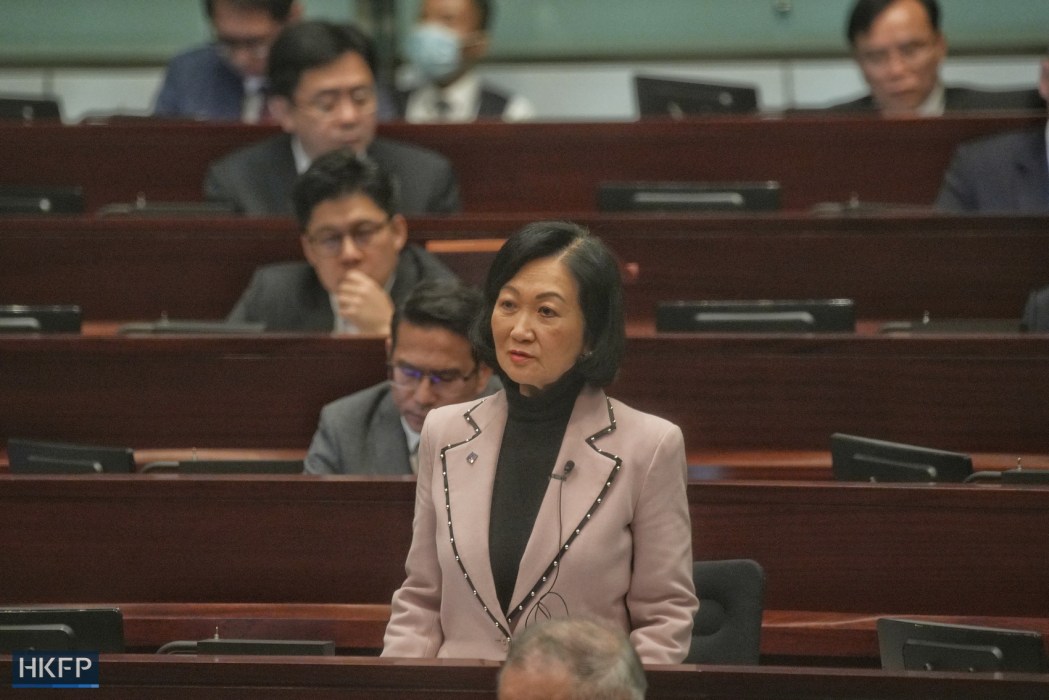
Interviewed by Ming Pao, she implied that this style (always “refute,” “firmly oppose,” “strongly condemn”) undermines Hong Kong’s ability to connect with the international community. ”Openness,” she said, is the key to success. When ”people come and money comes… this is the only way to be successful. And if it’s too much of a fighting style, it won’t work… If it’s too much wolf warrior [Hong Kong] won’t be able to play the role.” It was very sensible advice.
Ip was referring to government statements, such as the one a spokesman issued on March 20. He was responding to comments by various Western governments and politicians, non-government organisations, foreign media, and “absconders” about the passage of the Article 23 national security ordinance.
The reply started out: The HKSAR government “firmly opposed and strongly condemned the slanders and smears, as well as grossly misleading and false remarks” about the law. The reply ended: Only those who sought to “intrude into our home to plunder and loot” should fear the NSL. This behaviour was a “despicable manoeuvre” that was “doomed to fail.”
In this and many other responses to comments from the EU, the UK , the US and foreign media, the spokesman used language such as “slander” or “wantonly” or “maliciously slander,” “smear,” “so-called,” “utterly ugly,” “scandalous,” “absurd,” “confounding right and wrong” and so forth.
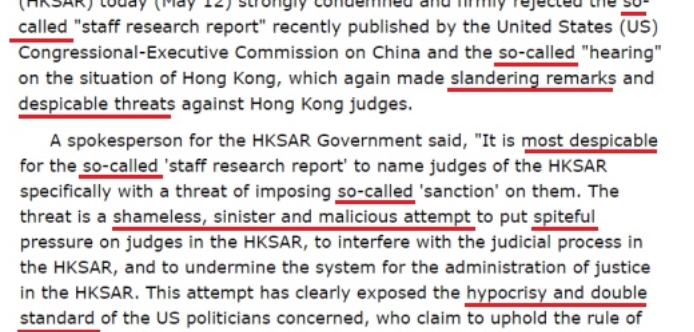
By some obscure logic, travel advisories in this lexicon became “so-called” travel advisories, perhaps because our government disapproved of them. This has long been the propaganda language of the central authorities (party and government). The authors of the EU, UK, and US reports did not use this kind of language. They also sometimes had good things to say about Hong Kong.
In a Jekyll and Hyde fashion, these characterisations were interspersed with reasonable and sober rebuttals of key elements of the foreign statements and reports. Apart from the language, the overseas reports and the Hong Kong government spokesman were mostly talking past each other. Officials in Hong Kong emphasised laws and policy while the foreign reports focused on the practices on the ground, quoting cases and surveys. Not a surprise.
The new language began creeping into Hong Kong official communications in July 2019, when the then-chief executive Carrie Lam Cheng Yuet-ngor decried the “smearing” of the police. “Smear” may mean to vilify, “to spread unpleasant or untrue rumours” about a person or institution to damage their (its) reputation. “Smear” is not a legal term, but the language of politics. The word was picked up by the Secretary for Home Affairs Lau Kong-wah in September and by the then-Secretary for Security John Lee Ka-chiu in October 2019.
A quick search for “smear” in government press release archives reveals that prior to 2019, the word was rarely used. From 2012-2017, for example, “smear” appears only once, used by Carrie Lam when she was chief secretary on January 11, 2017, to denounce certain people who ‘smear’ our institutions. From July 1, 2017 until the end of 2018 “smear” does not appear at all.
Since 2020 and especially in 2023, perhaps doing double duty, authorities were defending the National Security Law of 2020 and preparing the ground for Article 23. 2024 promises to be a bumper year.
The change in the government’s official language requires an explanation. I speculate that the central authorities now require it of official Hong Kong communication on some topics in some situations.
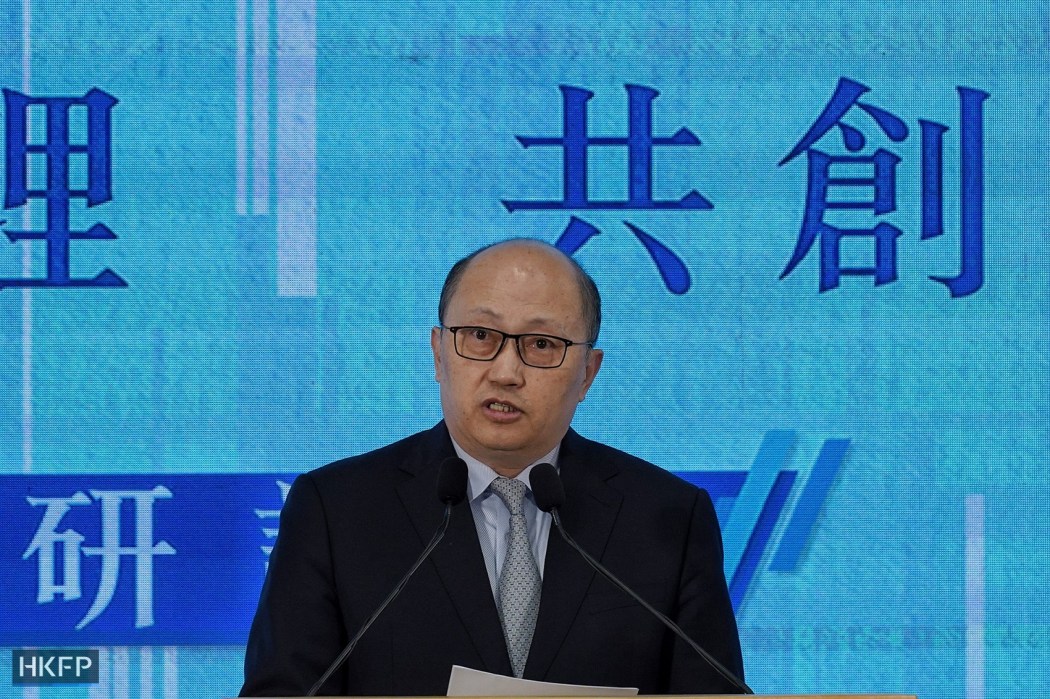
Speaking at the NSL Education Day ceremony on April 15, Liaison Office Head Zheng Yanxiong reminded everyone that after the formation of the “two laws and two mechanisms” [national security law and Article 23 national security ordinance; central national security office in Hong Kong and the Hong Kong government national security committee], those who oppose China and stir up trouble in Hong Kong will certainly smear; keeping Hong Kong’s capitalist system intact is not the same as keeping its Western and colonial ideology intact.
He said we must launch a tit-for-tat cognitive struggle [認知鬥爭]. “Unsavoury external forces are unscrupulously badmouthing China and Hong Kong, and even some well-known Western media have been involved in spreading rumours and smearing” … “some rumours and lies know no depths” … “the only way to survive is to share the same hatred and fight side by side.” So, are these foreign reports and the Hong Kong government responses part of this struggle?
Clearly extreme language is not required of every official communication defending Hong Kong’s national security regime. Witness the moderate speech from the Deputy Secretary for Justice, Horace Cheung Kwok-kwan, at the UN Human Rights Council. This speech reads like the Hyde part of many of the government spokesman’s responses to the foreign reports. Conflicted communication is ineffective communication.

Communication serves many functions. Among them, persuading or even engaging readers or listeners is very important. This was the function of the UNHCR speech. Expressing emotion is another function of communication. The Jekyll part of the Hong Kong government’s response to the foreign reports only told us about the emotional state of the spokesman. He was angry, very angry (returning hate for hate?)
This is good political theatre, rallying supporters and mobilising true believers. But it is ineffective at delivering important messages about what was one-sided, incomplete, or inaccurate in the foreign reports. Who would read beyond the first paragraph?
The government must know that netizens joke about government press releases. How many “slanders and smears,” “doomed to fail” and “so-called” will there be this time? The important messages are being lost because officials insult and demean recipients at the outset.
As Regina Ip observes, how can we hope to attract the resources China needs by using this kind of incendiary language? We want effective communication, not scoring points to impress the bosses.
Type of Story: Opinion
Advocates for ideas and draws conclusions based on the interpretation of facts and data.
Support HKFP | Policies & Ethics | Error/typo? | Contact Us | Newsletter | Transparency & Annual Report | Apps

Help safeguard press freedom & keep HKFP free for all readers by supporting our team

More HKFP OPINION:
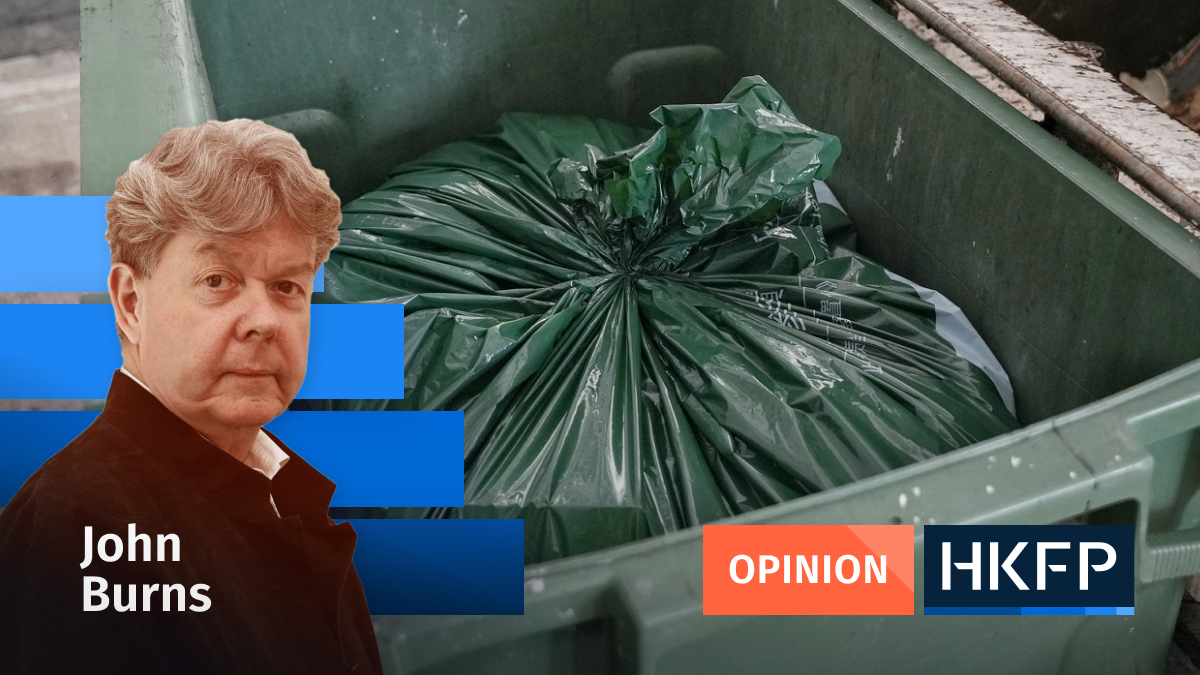
It’s time to get serious about shrinking Hong Kong’s growing garbage mountain
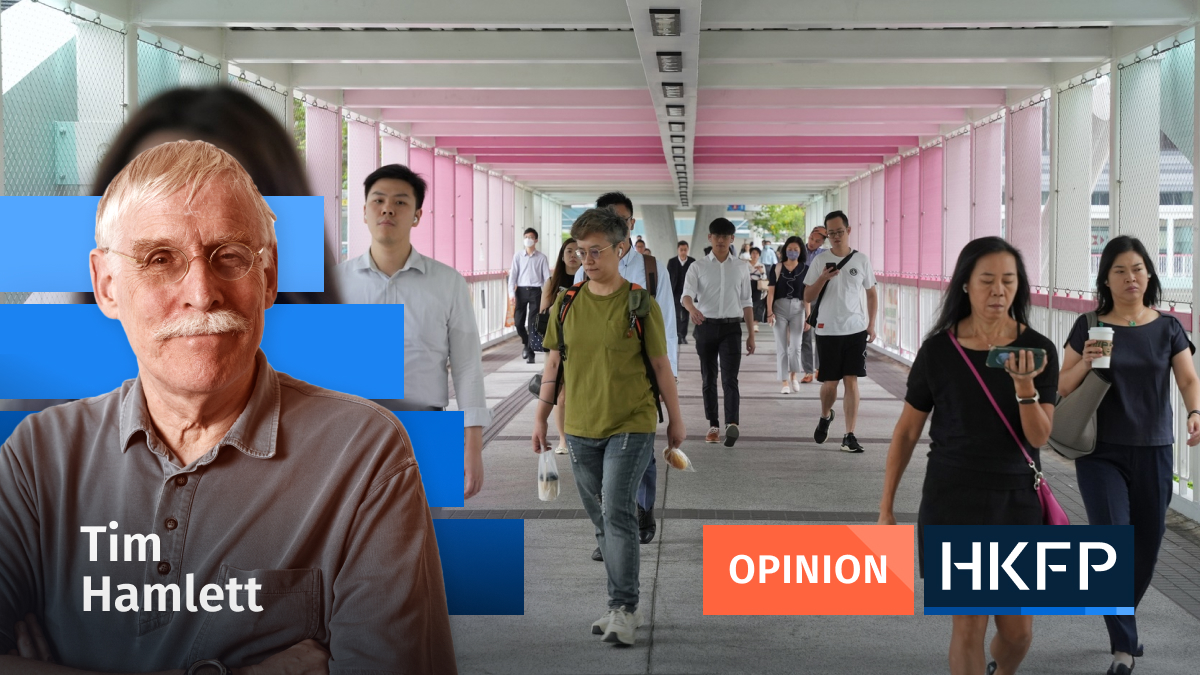
Hong Kong civil service vacancy rates suggest our happiness may have been exaggerated
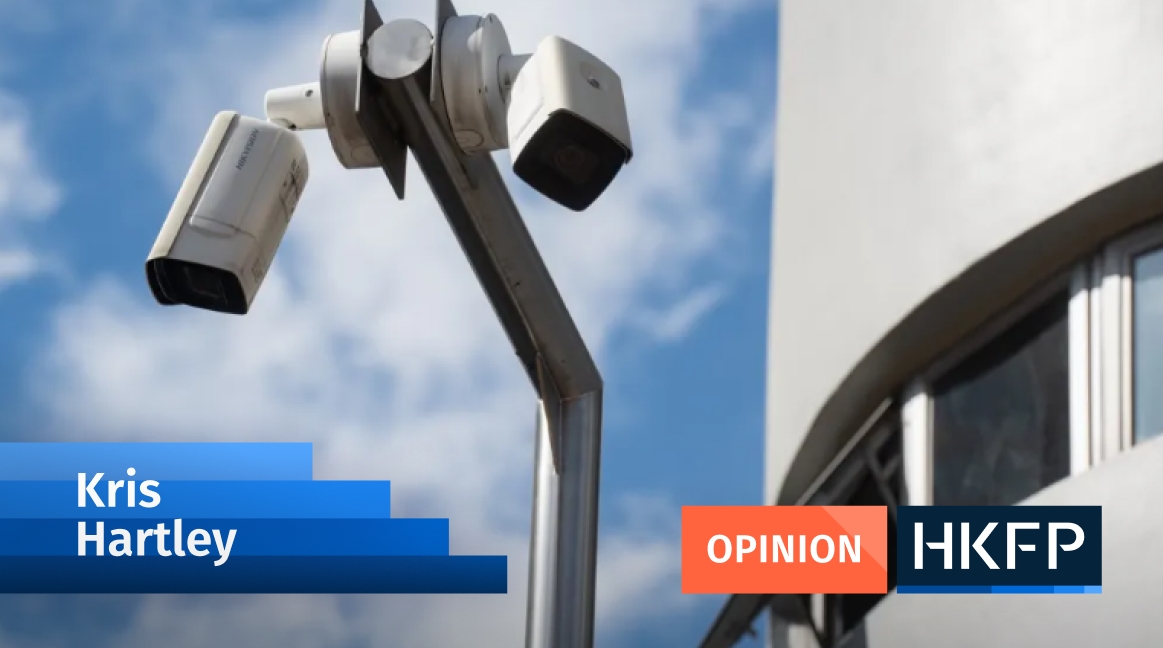
Hong Kong’s ‘smart city’ ambitions depend on trust as well as technology

Hong Kong can learn a lot from watching how mainland China’s central and local authorities interact

HKFP has an impartial stance , transparent funding , and balanced coverage guided by an Ethics Code and Corrections Policy .

Support press freedom & help us surpass 1,000 monthly Patrons : 100% independent, governed by an ethics code & not-for-profit.
Support HKFP | Code of Ethics | Error/typo? | Contact Us | Newsletter | Annual & Transparency Report

John Burns is an honorary professor at the Department of Politics and Public Administration at the University of Hong Kong. He was dean of HKU's Faculty of Social Sciences from 2011 to 2017, and is the author of titles such as Government Capacity and the Hong Kong Civil Service. He teaches courses and does research on comparative politics and public administration, specialising in China and Hong Kong.
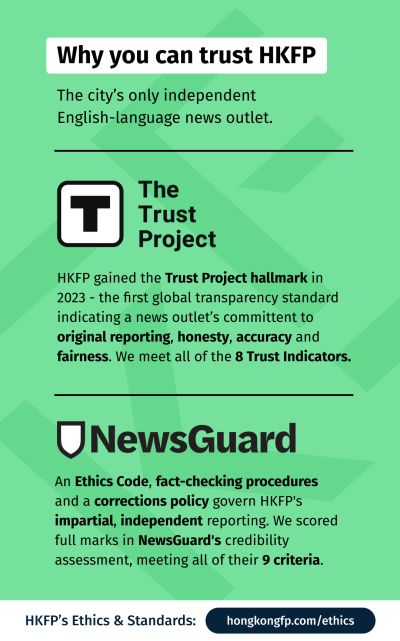
HKFP is a proud member of:

Latest Stories
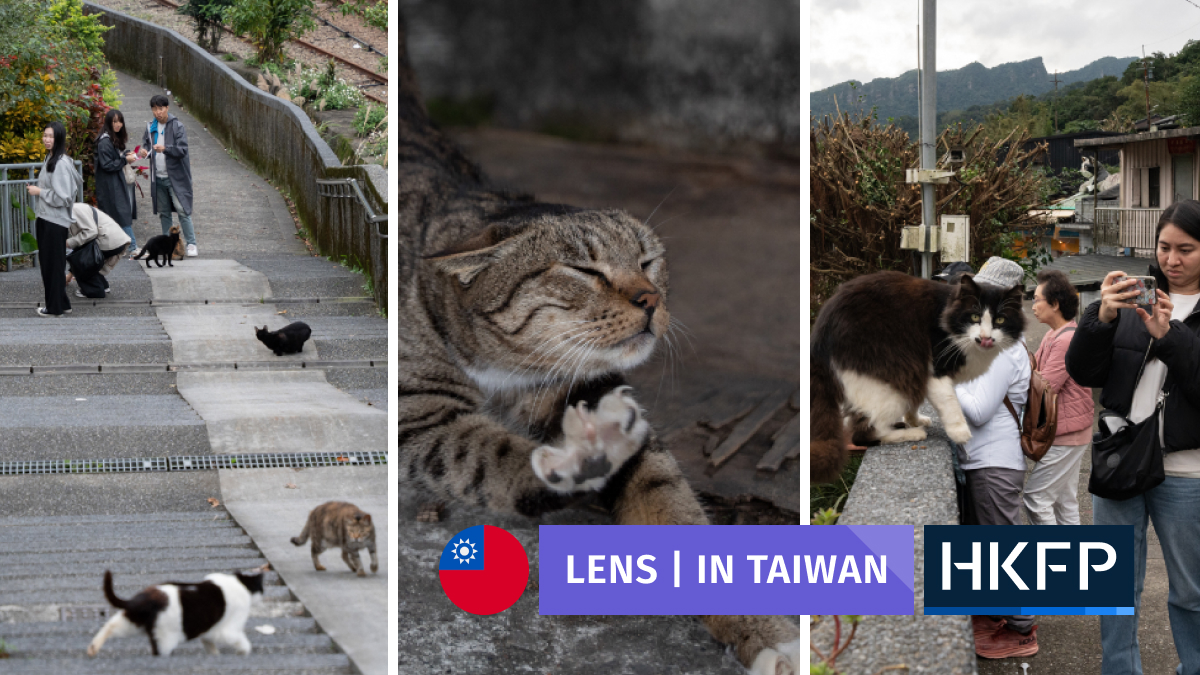
HKFP Lens: Cat lovers bring tourism boost to Taiwan village, as feline residents revive once-flourishing mining town
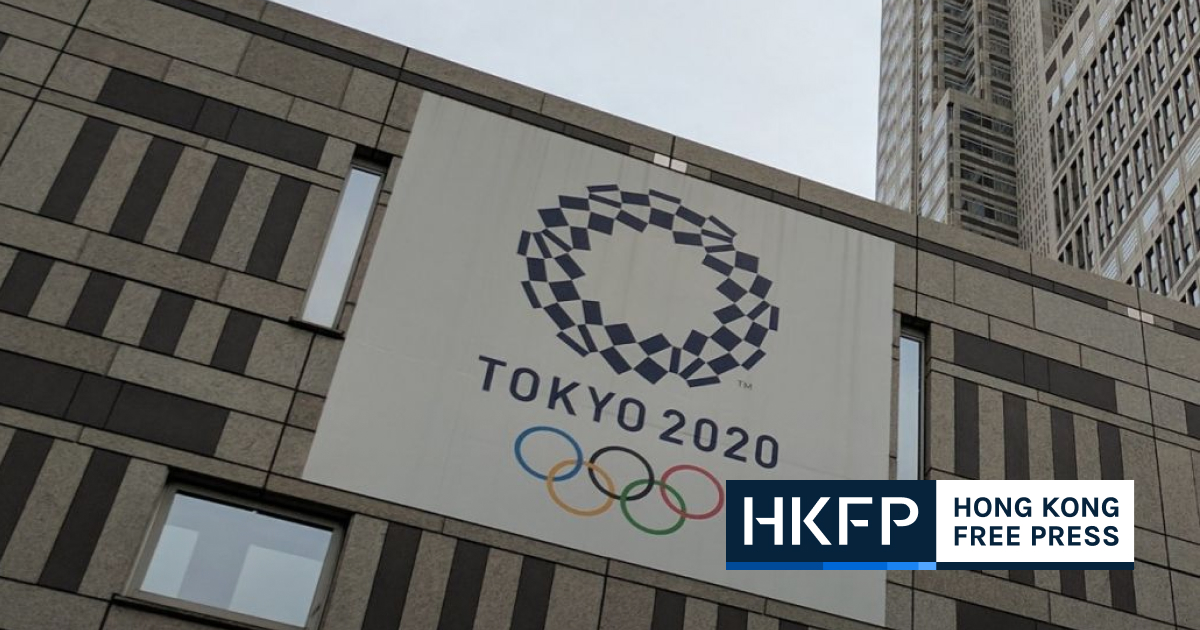
China anti-doping agency says will ‘actively cooperate’ with World Anti-Doping Agency audit
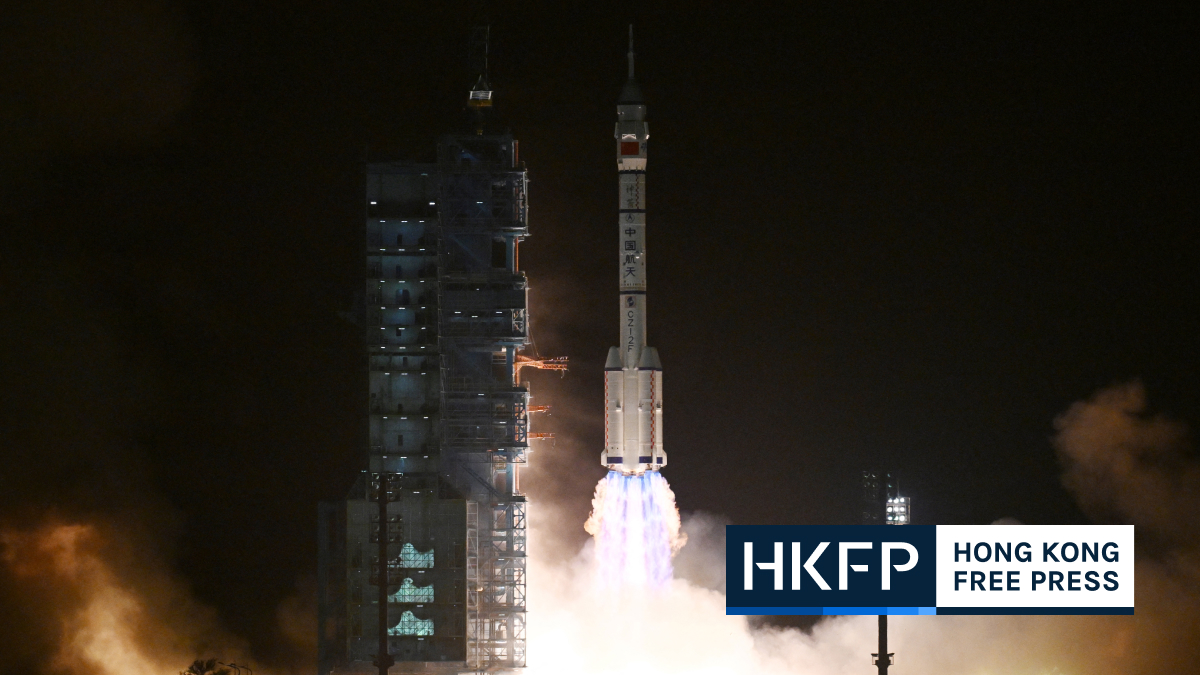
2030 moon mission: China’s Shenzhou-18 mission docks with space station, Xinhua reports
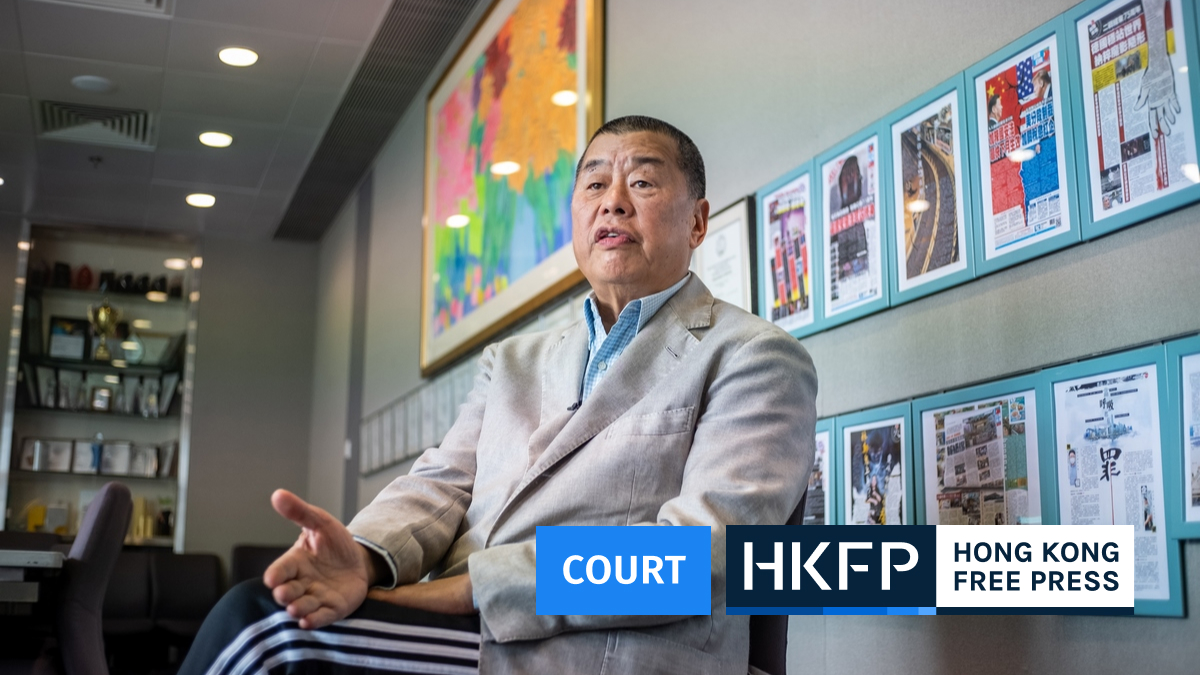
Jimmy Lai trial: Prosecution witness says he lied to police to downplay role in activist group that urged sanctions
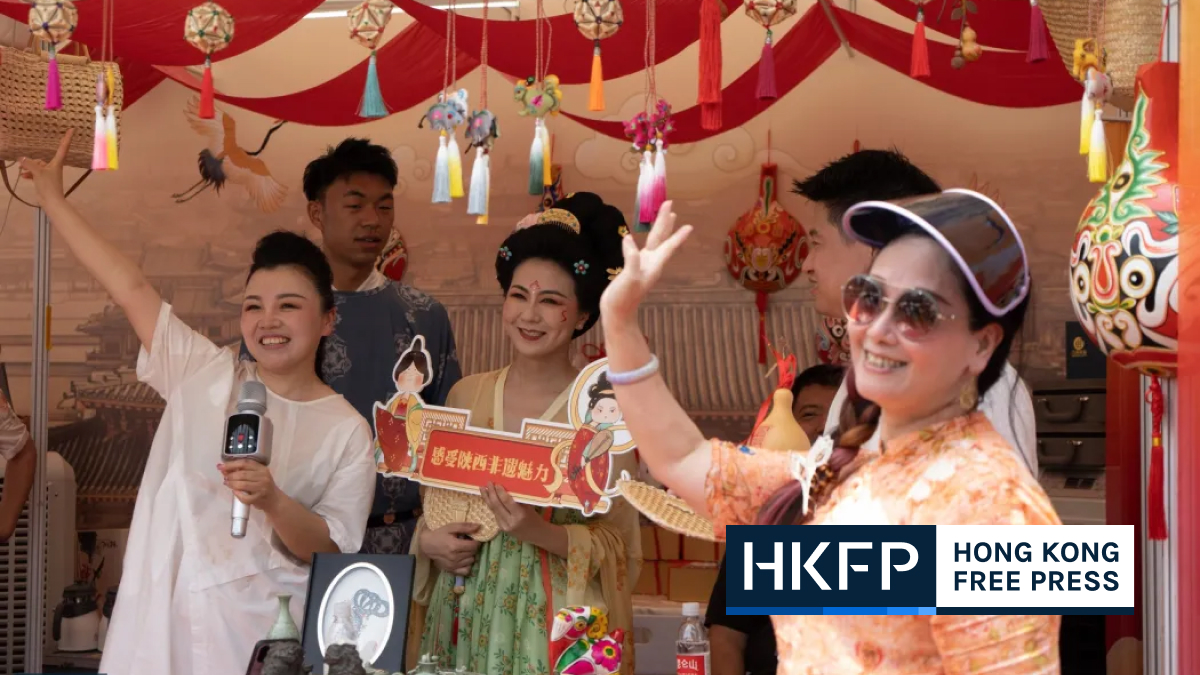
Hong Kong pro-Beijing groups seek to hold carnival at former Tiananmen vigil venue during anniversary period

Regular fireworks show to begin May Day, as Hong Kong links up with mainland China influencers to boost tourism
Something went wrong. Please refresh the page and/or try again.

features & interviews
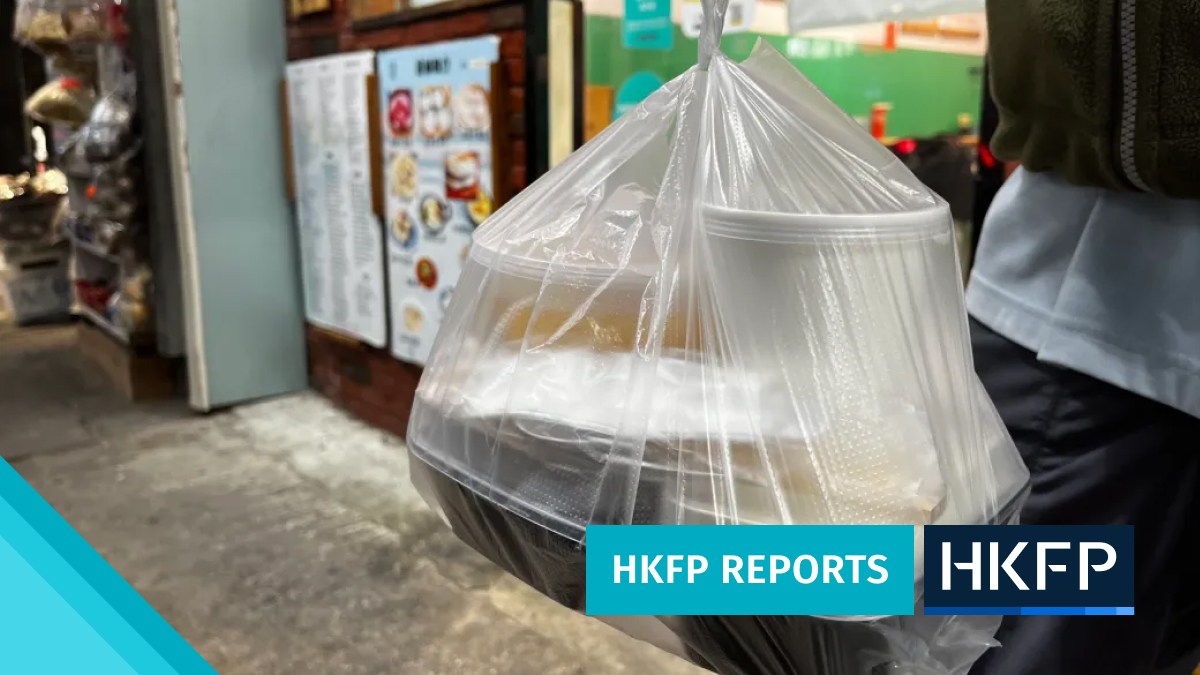
Restaurants slow to adopt eco-friendly alternatives as Hong Kong’s ban on single-use plastics takes effect
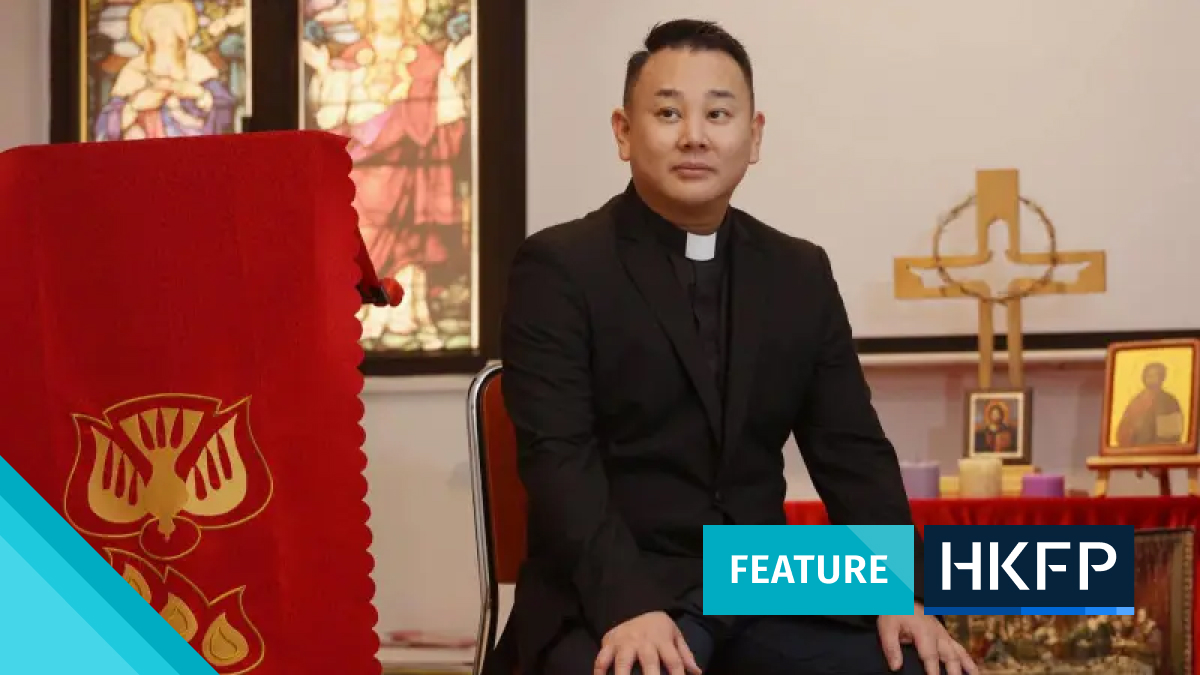
Sexual harassment allegations against LGBTQ-friendly pastor in Hong Kong raise questions over power dynamics
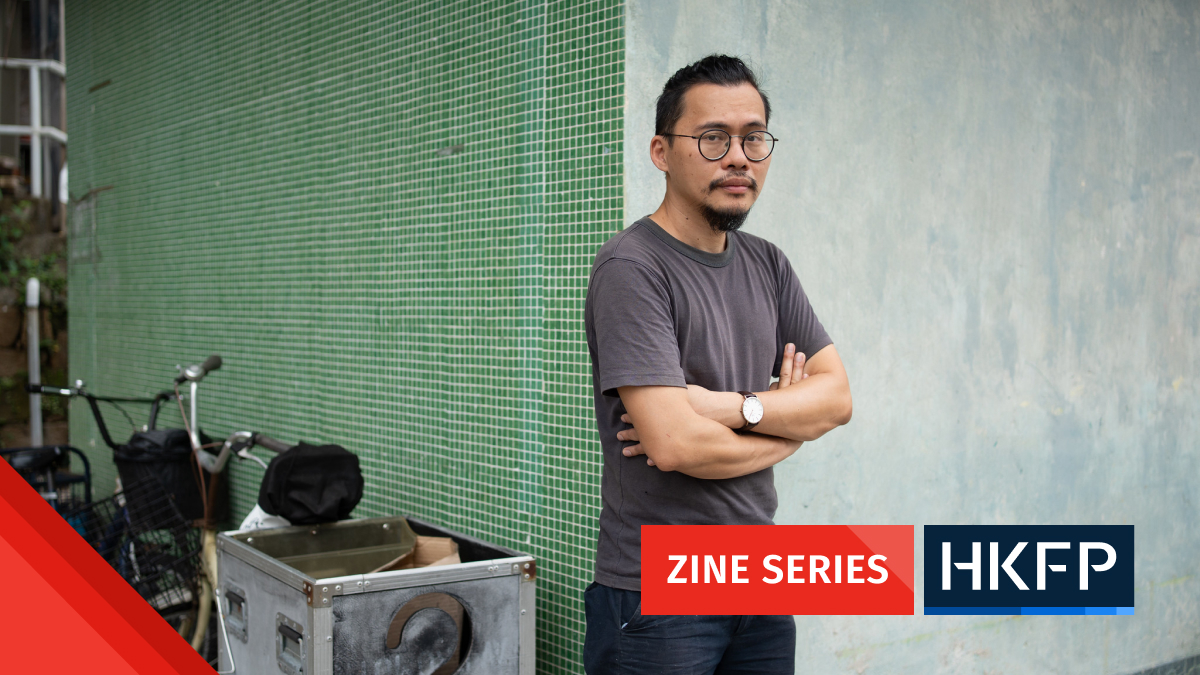
Hong Kong zine artist Forrest Lau finds inspiration from island life
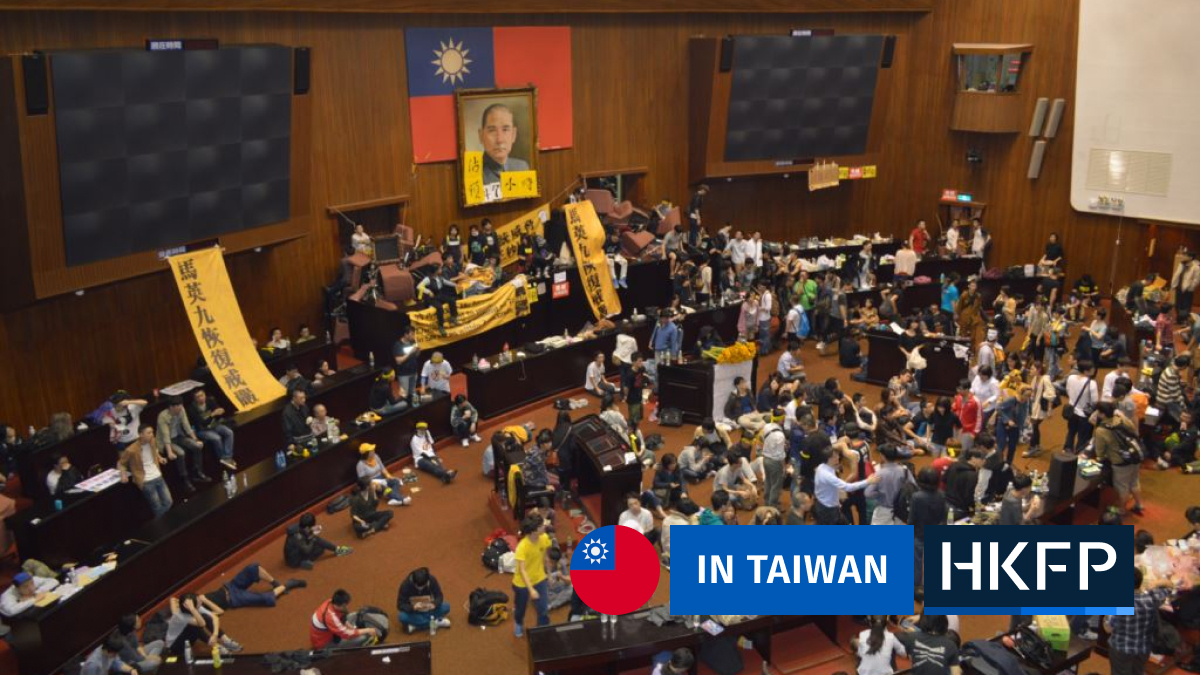
10 years on: How Taiwan’s Sunflower Movement sowed the seeds of a new civil society
Views expressed by opinion writers & advertisers are not necessarily shared by HKFP.
Where to find HKFP:
- HKFP Mobile Apps .
- HKFP Newsletter .
- HKFP Podcast .
- HKFP Facebook .
- HKFP Instagram .
- HKFP LinkedIn .
- HKFP Mastodon .
- HKFP Telegram .
- HKFP X/Twitter .
- HKFP YouTube .
- HKFP Apple News .
- HKFP Flipboard .
- HKFP News360 .
- HKFP Pushbullet .
- HKFP Whatsapp .
About HKFP:
- Advertise with HKFP .
- Announcements .
- Contact HKFP .
- Community Guidelines .
- Corrections Policy .
- Corrections Log .
- Documentary on HKFP .
- Freelance Charter .
- Newspaper Registration (periodical) .
- Policies, Ethics & Standards .
- Privacy, T's & C''s .
- Security Law .
- Staff Roster .
HKFP Partnerships:

Most-read stories today

About The Trust Project
The Trust Project is a collaboration among news organizations around the world. Its goal is to create strategies that fulfill journalism’s basic pledge: to serve society with a truthful, intelligent and comprehensive account of ideas and events.
- Share full article
Advertisement
Supported by
Heavy Rains Hit Southern China as Hong Kong Spots a Waterspout
Bad weather in Guangdong Province forced evacuations as forecasters warned of more rain and potential flooding.

By Zixu Wang and Yan Zhuang
Zixu Wang reported from Hong Kong, and Yan Zhuang from Seoul
Torrential rain battered southern China on Sunday, causing flooding and forcing tens of thousands of evacuations in the country’s most populous province, as a waterspout appeared briefly in Hong Kong and forecasters warned of potentially severe flooding.
Rain has been falling in Guangdong, which has a population of about 127 million, since last week. It intensified over the weekend, hammering the north of the province and the Pearl River Delta in the south, which includes Guangdong’s capital, Guangzhou, as well as the cities of Hong Kong and Macau.
The city of Yingde, in Guangdong’s north, received nearly a foot of rain from Friday to Sunday, the state-owned newspaper China Daily reported on Sunday . Nearly 20,000 people were evacuated and nine rivers were at risk of overflowing, it said.
In Guangzhou, the Longxue neighborhood received nearly five inches of rain over four hours on Sunday morning, the highest amount in the province.
The Beijiang River, a tributary of the Pearl River, flooded on Saturday night, China’s Ministry of Water Resources said on Sunday. As the downpour continued, the river faced a risk of an “exceptionally large” flood through Monday, the ministry said.
And in Hong Kong, a Chinese territory south of Guangdong, a waterspout was sighted over water by the local meteorological agency on Sunday morning. Waterspouts are whirling columns of air and water mist that form when cold air moves over warmer water, drawing up moisture.
There were no reports of the waterspout’s causing damage, and a rainstorm warning for the city was canceled at 2 p.m. But forecasters warned of violent winds and possible flooding.
Heavy rain was also affecting parts of the neighboring Chinese provinces of Guangxi, Jiangxi and Fujian on Sunday.
The heaviest rain was forecast to shift from the north to the east of Guangdong on Monday, and some areas could receive up to 10 inches of rain over 24 hours, according to the China Weather Network, an arm of the country’s meteorological authority. The rainfall was expected to begin easing on Tuesday.
Thunderstorms and sometimes heavy showers were also forecast for Hong Kong on Monday.
Zixu Wang is a Times reporter and researcher covering news in mainland China and Hong Kong. More about Zixu Wang
Yan Zhuang is a Times reporter in Seoul who covers breaking news. More about Yan Zhuang

IMAGES
COMMENTS
Before You Travel Entry Requirements Practical Info Travelling to Macao Ports of Entry Local Transportation Travel Agencies. ... 12º andar, Macau: E-mail: [email protected]: Tel +853 2831 5566: Fax +853 2851 0104: Tourism Hotline +853 2833 3000: Stay Connected Don't Miss Any Updates Subscribe eNews See Macao on the Go
Restaurants in Macau are open. Bars in Macau are . Find continuously updated travel restrictions for Macau such as border, vaccination, COVID-19 testing, and quarantine requirements.
Reconsider travel to the Macau SAR due to a limited ability to provide emergency consular services. Exercise increased caution when traveling to the Macau SAR due to the arbitrary enforcement of local laws. ... Rapid COVID-19 tests are readily available at pharmacies and retail establishments throughout Macau. COVID-19 Vaccines: The COVID-19 ...
Covid threw that all into a tailspin. Nearly three years of intermittent lockdowns and blocked travel from the mainland and Hong Kong had a devastating effect on the city's primary source of income.
All eligible travelers should be up to date with their COVID-19 vaccines. Please see Your COVID-19 Vaccination for more information. COVID-19 vaccine. Hepatitis A. Recommended for unvaccinated travelers one year old or older going to Macau. Infants 6 to 11 months old should also be vaccinated against Hepatitis A.
FCDO travel advice for Macao. Includes safety and security, insurance, entry requirements and legal differences. ... COVID-19 rules. There are no COVID-19 testing or vaccination requirements for ...
Reconsider travel to the Macau Special Administrative Region (SAR) due to a limited ability to provide emergency consular services. ... U.S. citizens overseas may receive PRC-approved COVID-19 vaccine doses where they are eligible. Do not consume drugs in the PRC or prior to arriving in the PRC. A positive drug test, even if the drug was legal ...
China will resume quarantine-free travel with Macau as the city recovers from its worst ever Covid-19 outbreak, in a move that could herald a tourism revival for casinos that have been bleeding ...
About Government. Special Promotions. COVID-19 Vaccine Information Page. COVID-19 Vaccine Information Page. Content provider: Health Bureau (SS) Published on: 5th February 2021 at 12:18. COVID-19 Vaccine Information Page.
Restaurants in Macau are open. Bars in Macau are . Find continuously updated travel restrictions for Macau such as border, vaccination, COVID-19 testing, and quarantine requirements.
Macau eases Covid-19 rules, allows home quarantine for arrivals, including those from Hong Kong. ... including resuming service of the high-speed trains to travel to Guangdong province, had been ...
Macau predicts shift in travel patterns as Covid-19 limits tourism to short-haul, short stay visitors. Time spent on trip planning and pertinent reservations may be shortened, while many may opt ...
What happened. Macau is slowly, very tentatively, opening its borders — as several recent travel policy changes show. After more than two years' suspension, Macau resumed acceptance of smart-travel e-Visa applications on November 1, allowing mainland Chinese residents to apply for tourist visas via the pre-pandemic online system rather than the more cumbersome in-person process (which ...
Effective 01 April 2023. All travellers are allowed to enter Macau regardless of their COVID-19 vaccination status. Foreign travelers and China passport holders must hold valid passports with a minimum validity of 90 days. All measures (eg. Pre-departure covid test PCR, or nucleic acid test) has been removed. Passengers are not permitted to use ...
Travel Advisory. We encourage you to enroll in the Smart Traveler Enrollment Program (STEP) to receive the latest updates in Hong Kong and Macau. Our travel alerts are also posted on our webpage here. Please review our Hong Kong Country Information and Macau Country Information pages. For the latest information about COVID-19 quarantine and ...
COVID-19. Coronavirus disease (COVID-19) is an infectious viral disease. It can spread from person to person by direct contact and through droplets in the air. It is recommended that all eligible travellers complete a COVID-19 vaccine series along with any additional recommended doses in Canada before travelling.
Visitor arrivals to the world's biggest gambling hub dropped by 36.8% on the month and 54.3% year-on-year to 366,511 in November, according to the Macau Statistics Bureau.
The Foreign, Commonwealth & Development Office ( FCDO) provides advice about risks of travel to help British nationals make informed decisions. Find out more about FCDO travel advice. This travel ...
The Macau gaming trade has been heavily affected by the Covid-19 pandemic and resulting restrictions. The city saw a more than 51.4% year-on-year decline in revenue in 2022, with takings declining to MOP42.20bn (£4.38bn/€4.97bn/$5.24bn). This total was an 85.6% fall from 2019, the last year unaffected by the Covid-19 pandemic.
The paper slip provided upon entry to Macau includes your date of entry and your latest departure date. The slip is needed at hotel check-in and when requested by local authorities. Replacement slips are available from the Macau Border Control Department or a police station. More information: Macau government website; Travel advice for Hong Kong
According to the U.S. Department of State, traveling to China is under a level 3 travel advisory, warning Americans to reconsider. The State Department has four warning levels. The State ...
Find continuously updated travel restrictions for Macau such as border, vaccination, COVID-19 testing, and quarantine requirements. ... Do I need a COVID test to enter Macau? Visitors from Malaysia are not required to present a negative COVID-19 PCR test or antigen result upon entering Macau.
Negative Covid-19 test is required for India travellers. Health authorities have announced on that anyone departing from India who wishes to use the special ferry link established between the Hong Kong airport and Macau, must first present a negative Covid-19 nucleic acid test of the new type of coronavirus issued by a qualified medical ...
Macau; Taiwan; World; TOPICS Open dropdown menu. 2014 Umbrella Movement; 2019 Protests; 2021 Legislative Election; 2022 Leadership Race; 2023 District Council Election; 47 Democrats Trial; Covid ...
Initial data showed travel bookings, searches for hotels and flights have surpassed levels seen in 2019 before the Covid-19 outbreak ... upending businesses from airline operators to Macau's ...
Bad weather in Guangdong Province forced evacuations as forecasters warned of more rain and potential flooding. By Zixu Wang and Yan Zhuang Zixu Wang reported from Hong Kong, and Yan Zhuang from ...